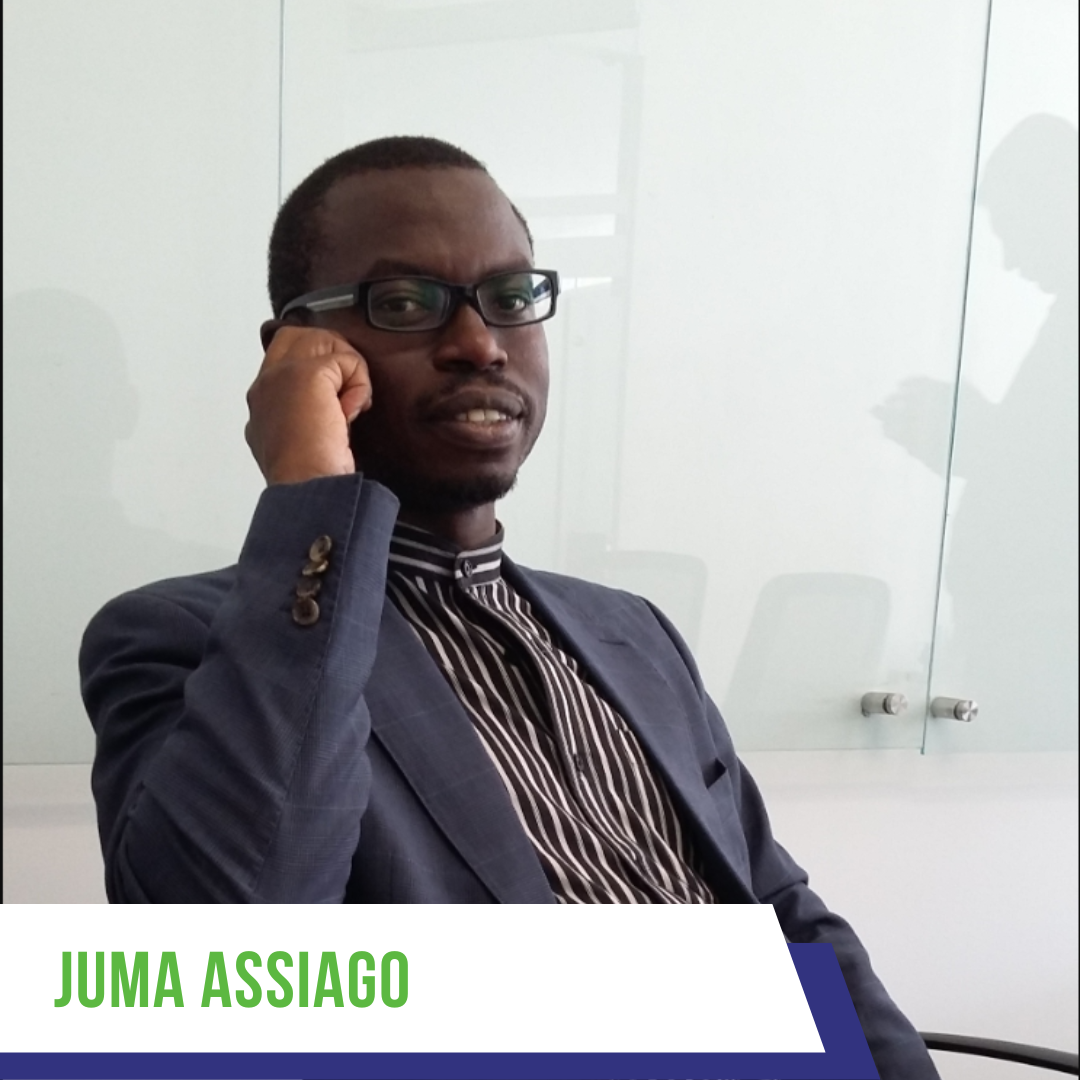
Mr. Assiago, an Urbanist and Social Scientist, is the Global Coordinator of the Safer Cities Programme at UN-Habitat. He has a Bachelor of Science degree (United States International University) and a Masters of Science degree in Sustainable Urban Development (Oxford University, United Kingdom). He joined UN-Habitat in October 1999 and has 22 years international working experience providing technical support to both national and local governments on the development and implementation of city crime prevention and urban safety strategies. Part of his achievements has been the development of the Global Network on Safer Cities (GNSC), the development and adoption of UN systemwide Guidelines on Safer Cities and Human Settlements, and realisation of several municipal crime prevention and safety strategies globally.
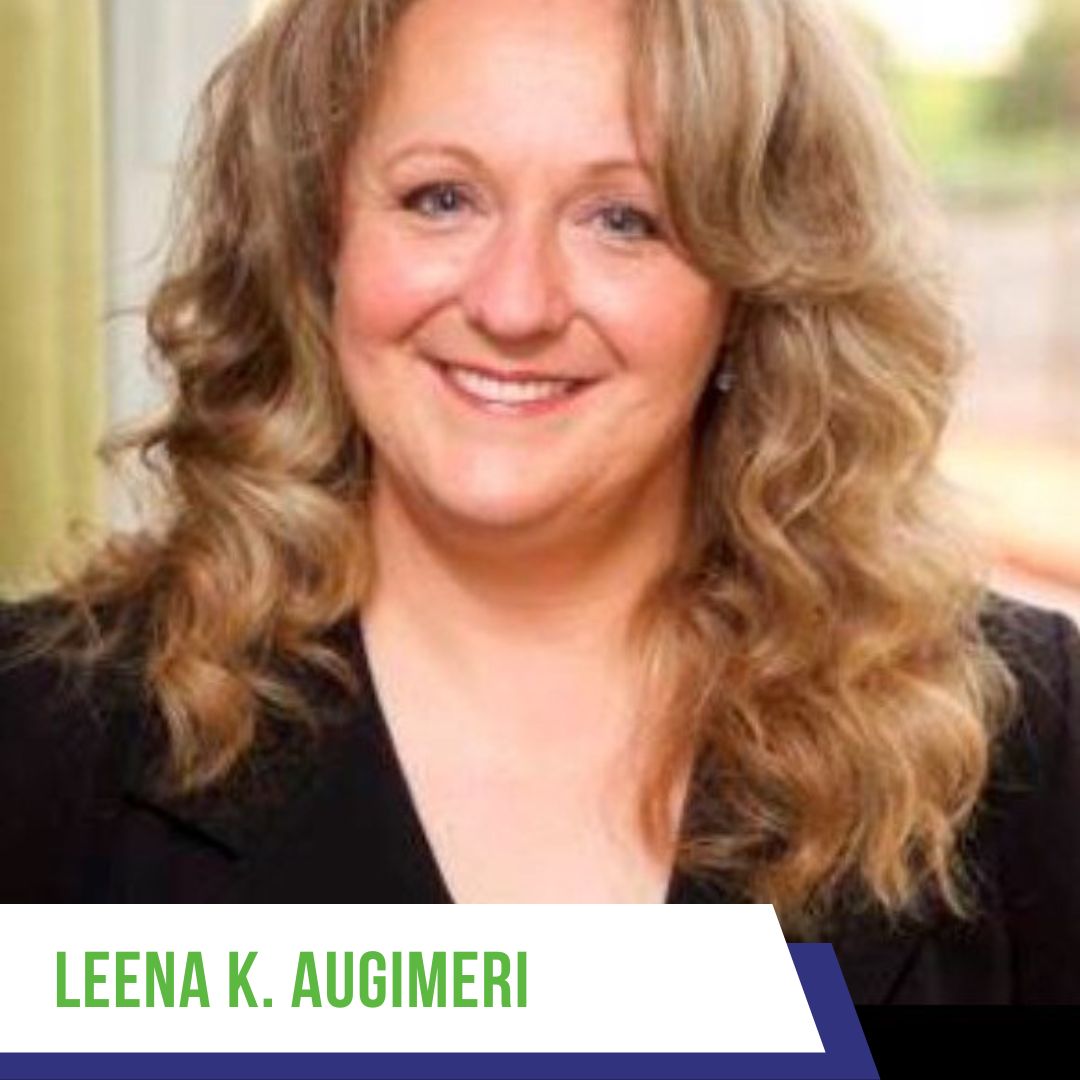
Leena K. Augimeri, PhD, is Director, Program Scaling, Strategic Partnerships & Co-Founder of SNAP at the Child Development Institute (CDI), and Adjunct Professor, at the University of Toronto. For 38 years, this innovative scientist-practitioner has focused on research, development, dissemination, and implementation of evidence-based children/youth mental health (MH) and crime prevention (CP) strategies, and the creation of a comprehensive MH & CP framework for children/youth with serious disruptive behaviour problems (referral protocols, risk/need assessment guides, gender-sensitive programs). Dr. Augimeri has authored numerous publications, conducted hundreds of presentations, and received several prestigious awards (e.g., Prime Minister’s Regional Social Innovation Award and Elizabeth Manson Award for exemplary contributions to the promotion of children’s MH). She has led national initiatives and participated in international study groups aimed at creating massive social change and improving the landscape of children/youth MH and CP
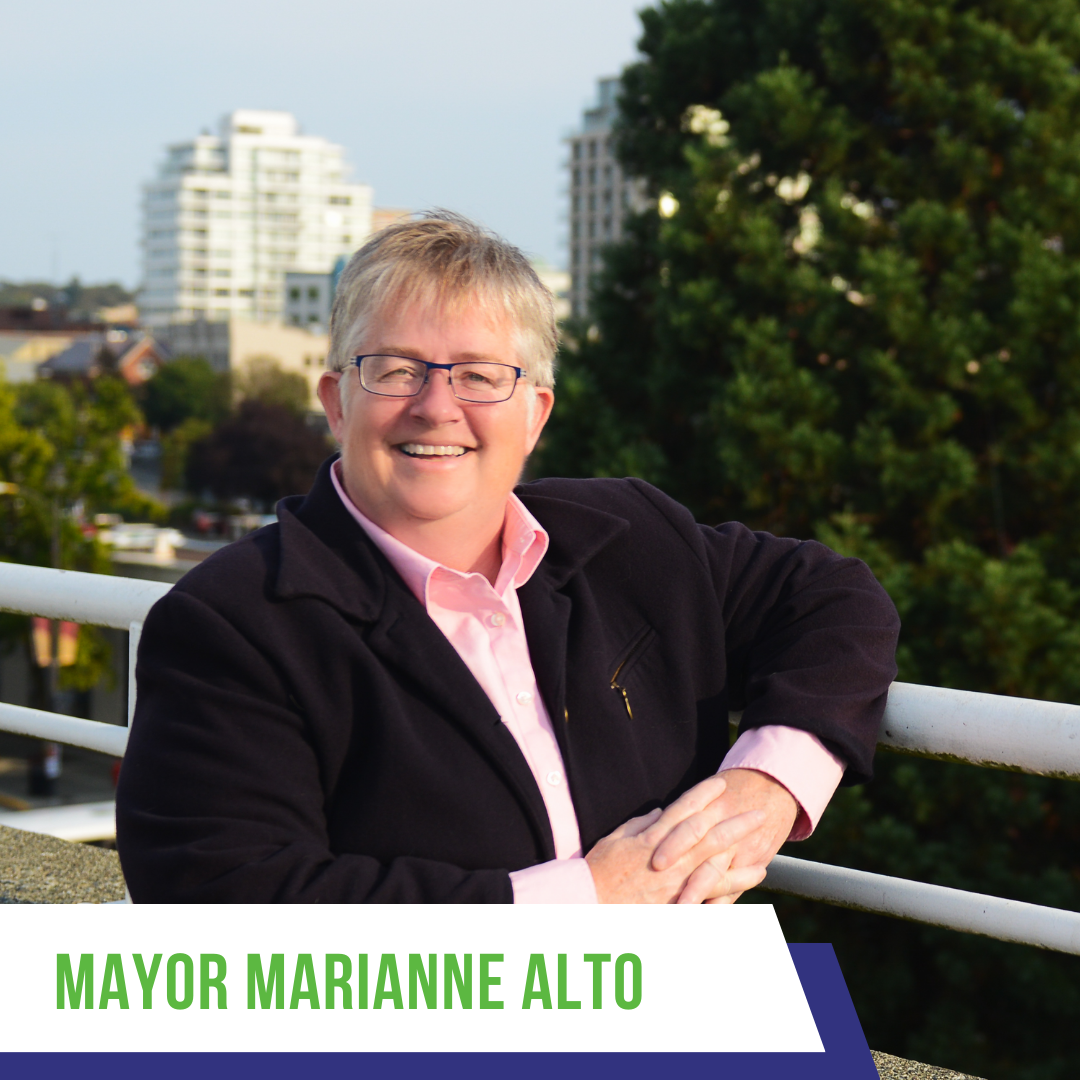
Victoria Mayor Marianne Alto is a facilitator by trade with university degrees in law and science. A businesswoman active in community causes for decades, Marianne was first elected to Victoria City Council in 2010, and elected as Mayor in 2022.
Mayor Alto is currently co-chair of the Victoria/Esquimalt Police Board, in addition to many other committees and organizational bodies in Victoria, the capital region, and beyond. Mayor Alto is matriarch of the City Family (a unique collaboration among the City, the Songhees and Esquimalt Nations) having nurtured a long, rich relationship with those Nations.
A zealous advocate for increased housing supply and affordability, Mayor Alto actively facilitates civil discourse toward the realization of an intentionally transformed city. Mayor Alto convened the city’s first collaboration with Island Health and service providers working in the various fields of harm reduction, addictions and mental health, and initiated the city’s first open data portal, driving the city’s commitment to open government. She continues to be committed to expanding the city’s efforts at smart city technology, in particular as it enables Victoria’s capacity for climate adaptation, disaster planning and response, optimizing citizen engagement and inclusion, public transportation and the lifecycles of infrastructure assets.
Married and a mom of two boys, Marianne is a lifelong activist who vigorously advocates for equity, inclusion and fairness for everyone. She owns and operates Azimuth Research & Consulting, a firm specializing in problem solving, change management and facilitation.
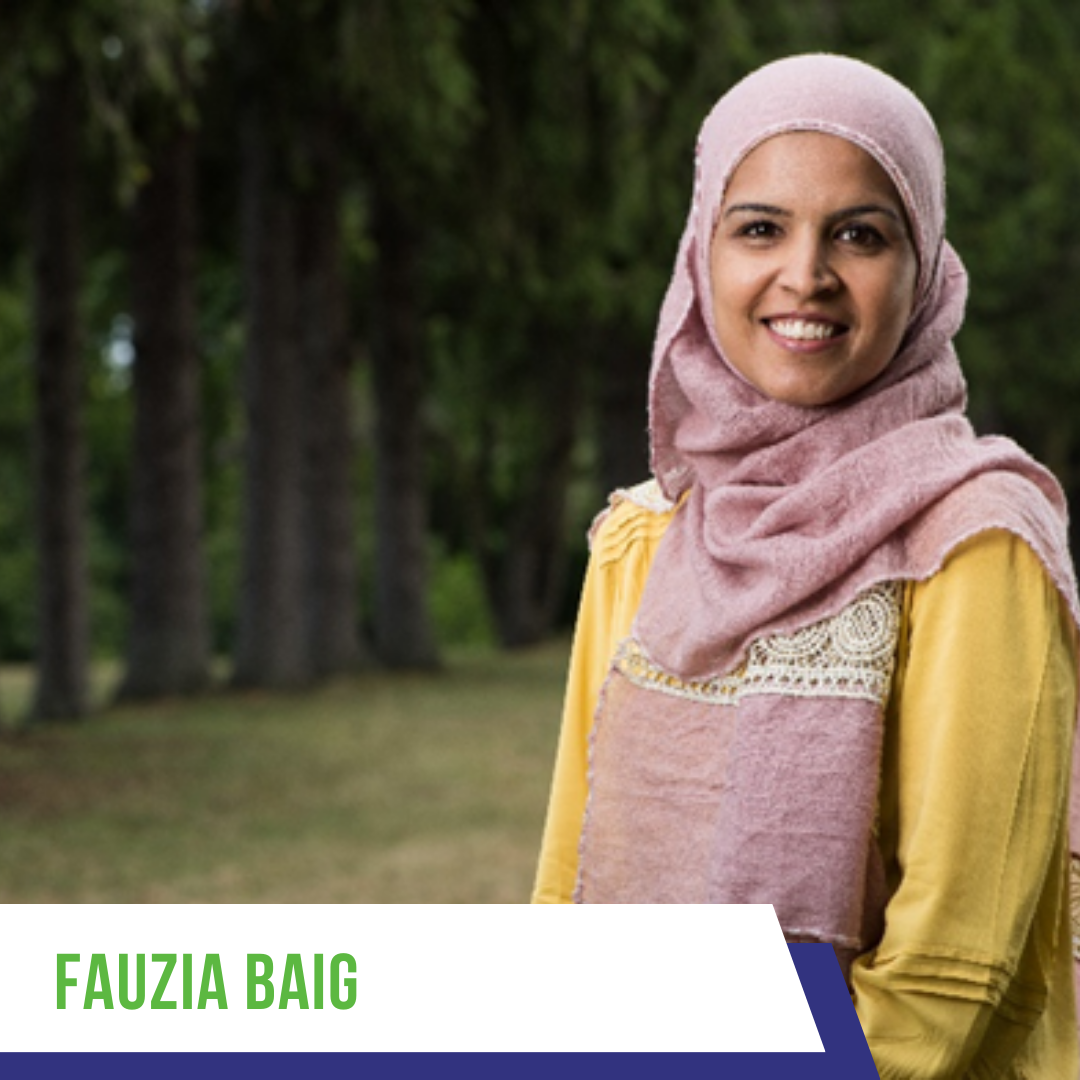
Fauzia Baig has lived and worked in the Region for many years. She studied at the University of Waterloo and has worked at the Region of Waterloo for more than 15 years in different roles and departments including Public Health and Community Services. She is now the first Director of EDI in the CAO’s office. In this role, Fauzia provides strategic advice and leadership, and works alongside Regional staff and community leaders to improve equity, address the impacts of systemic-racism, and innovate the way the Region works with community to listen, learn, act, and collaborate on community input. This new and exciting role reflects the Region's commitment to anti-racism, anti-oppression, and systemic change and is an exciting step forward in the journey to address the systemic impacts of racism in this community. Currently, she is part of the core leadership team for Waterloo Region’s Community Safety Wellbeing Plan framework
Fauzia has always had a passion for social justice and has been part of different community organizations and committees including Coalition of Muslim Women, City of Kitchener Mayor’s Task force for EDI, and Waterloo Region District School Board Equity and Inclusion Advisory Group.
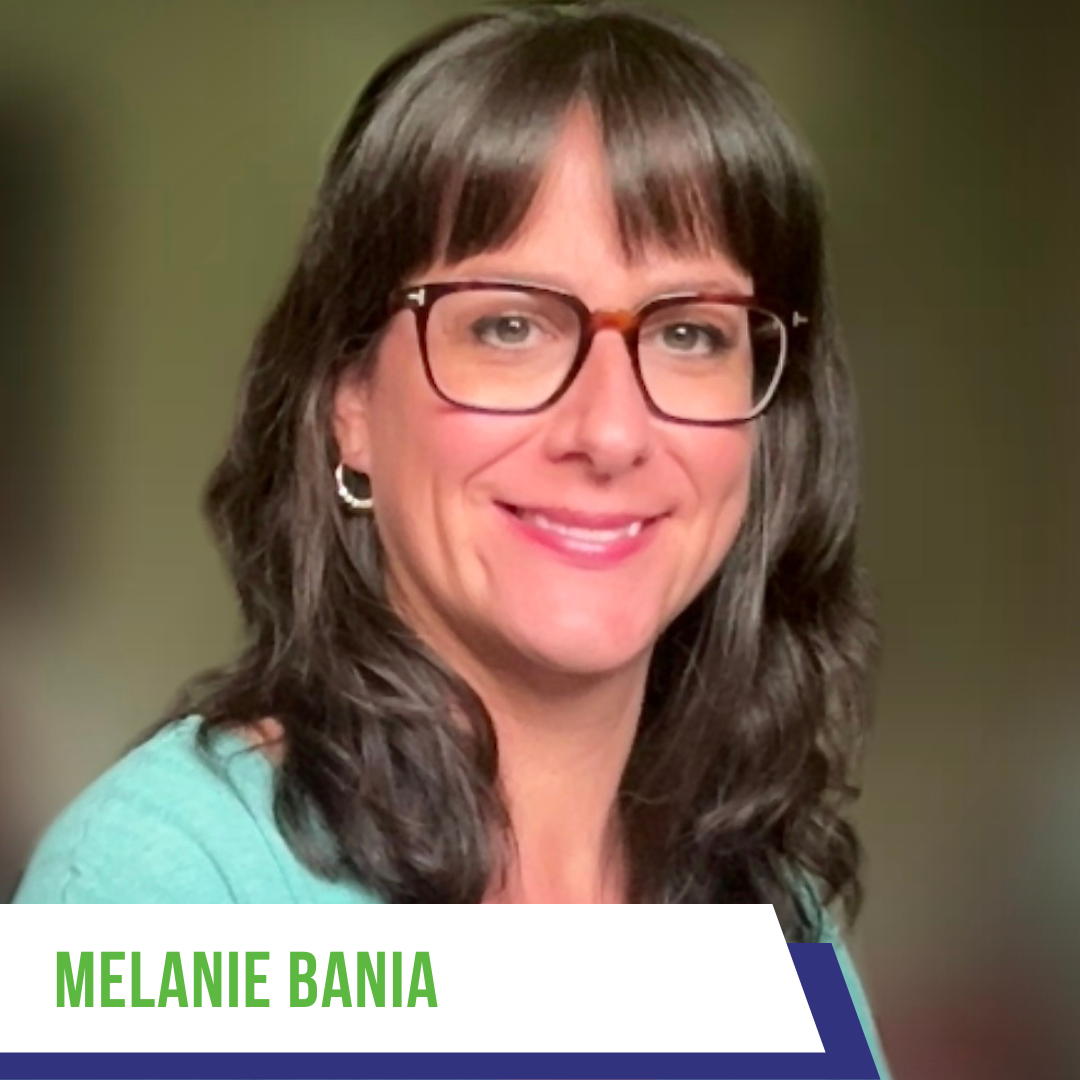
Melanie was part of the team at the Institute for the Prevention of Crime that launched the CMNCP in 2006. She is thrilled to be back as part of the CMNCP team in 2023! Melanie will lead and support various initiatives including facilitating training sessions, supporting the development of community safety and well-being (CSWB) plans, and developing capacity in the evaluation and monitoring of safety initiatives. Melanie holds a PhD in Criminology and her areas of expertise include collaborative governance, community-based crime prevention, youth violence prevention, youth justice, program evaluation and performance measurement. Melanie has a unique blend of front-line, senior management, and academic experiences, allowing her to see issues and solutions from various perspectives. Melanie’s approach relies on genuine engagement, relationship-building, and focuses on continuous learning. She is fluently bilingual in English and French and is committed to working from community-centred and anti-oppressive lenses.
Melanie resides on the traditional unceded territory of the Algonquin Anishnaabeg People, colonially known as Ottawa, Ontario.
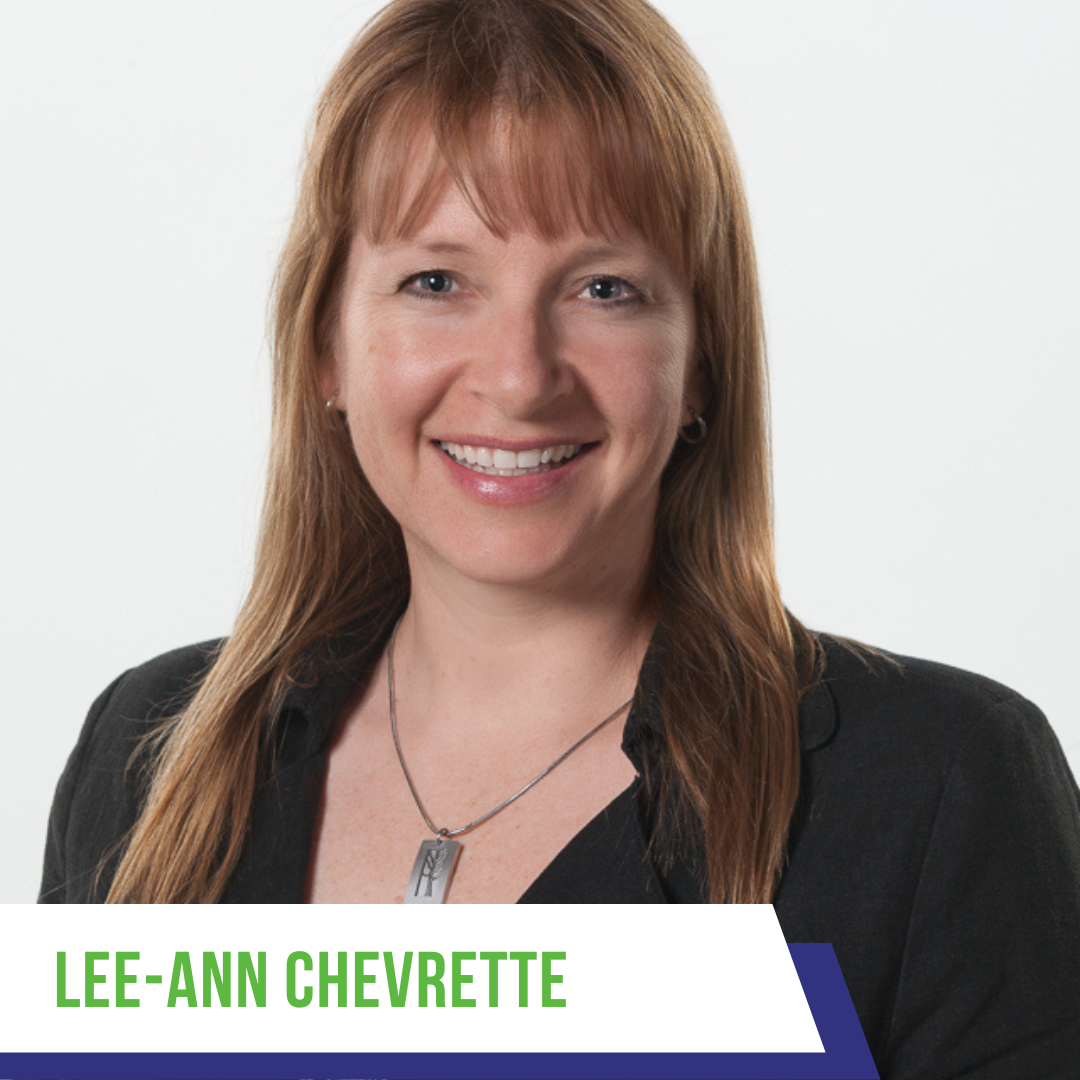
Lee-Ann Chevrette was born and raised in Timmins, Ontario, and spent her early years immersed in nature. After graduating from the University of Guelph with a Bachelor of Science Degree in Biology and Environmental Protection, she spent a decade working in the realms of forest ecology, wildlife biology and environmental education for provincial and territorial governments, Indigenous organizations, and not-for-profits in British Columbia, the Yukon and the Western Arctic Region of the Northwest Territories. She has lived and worked in remote Indigenous communities and is deeply committed to anti-racism and reconciliation efforts. She returned to Ontario to complete a Masters Degree in Environmental Studies, with a focus on Northern Environments and Cultures, from Lakehead University. She is employed as the Community Safety & Well-Being Specialist with the City of Thunder Bay. When not working, she can likely be found exploring the rugged beauty of Lake Superior’s north shore with her husband and three teenagers.
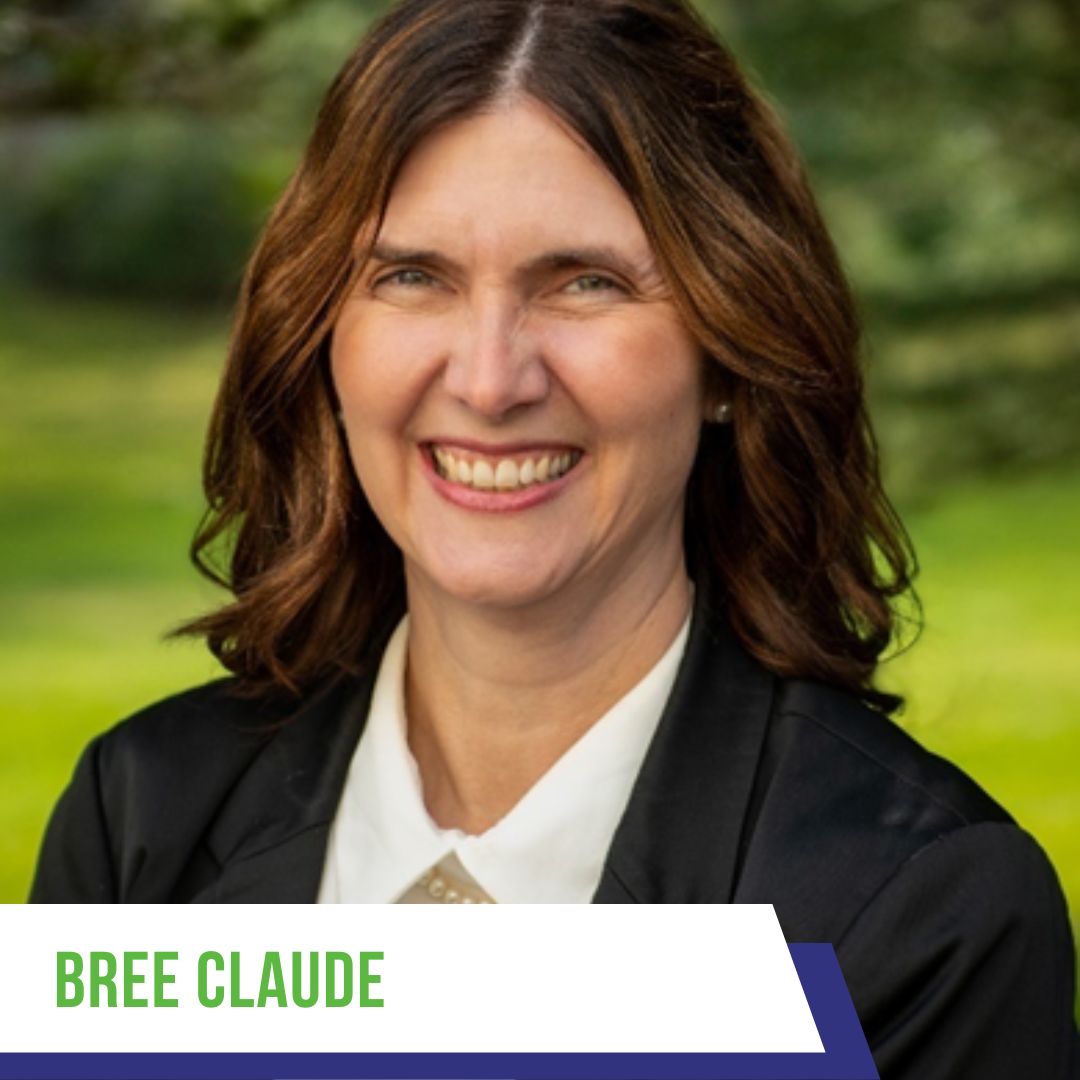
Bree is the Vice President of Customer Experience and Community Partnerships with Civida, one of the largest affordable housing management bodies in the province of Alberta and she is also the Executive Director of the Civida Housing Foundation. Bree has been immersed in social policy and practice for nearly three decades in non-profit and public service environments at both provincial and municipal levels where she held Director and Executive Director roles in the ministries of Human Services, Seniors and Housing, Advanced Education, Children’s Services and with the municipality of Strathcona County. Bree has a degree in Political Science and a Master of Science in Human Ecology and is currently a Doctoral Candidate with Royal Roads University Doctor of Social Sciences Program. In her research, Bree is investigating the social interactions of community leaders that create conditions to improve safety and wellbeing in Canadian communities.
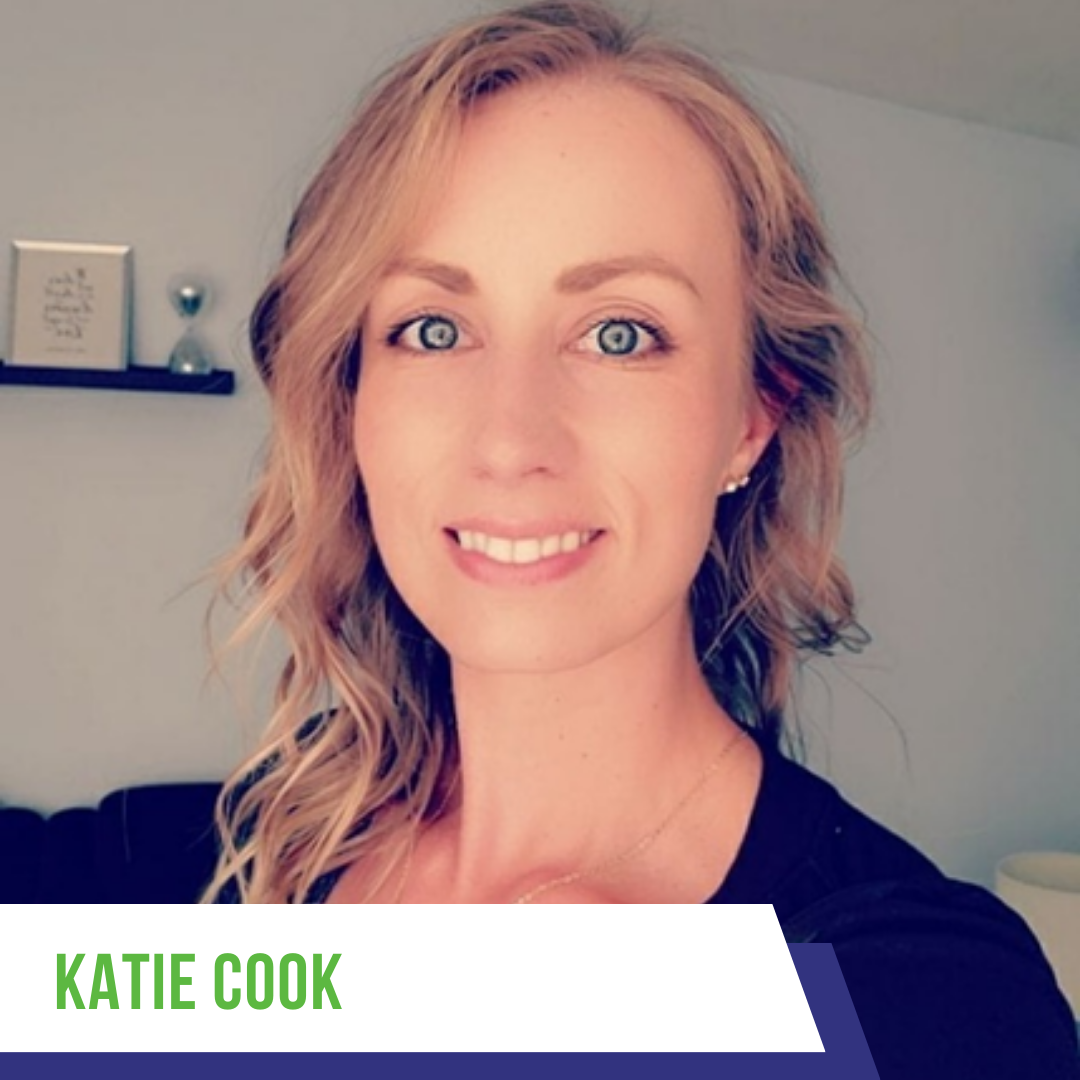
Katie joined CMNCP in 2020. Her work involves managing a range of projects, including the development of community safety and well-being plans, creating documents to support communities in their own work (i.e., the Practitioner Guide for the Development of CP/CSWB Plans and topic summaries), and conducting research. She is a criminologist with experience in youth justice and community crime prevention. She completed her PhD in sociology at the University of Waterloo where her research focused on youth crime prevention and campus law enforcement. She has worked with the Waterloo Region Crime Prevention Council on projects to support marginalized youth, reduce problematic substance use, and prevent violence, and was a member of the Youth Justice Committee with the John Howard Society of Waterloo Wellington for several years. Her work is guided by the principles of equity, collaboration, and long-term investment in the social determinants of health to ensure all members of the community can thrive.
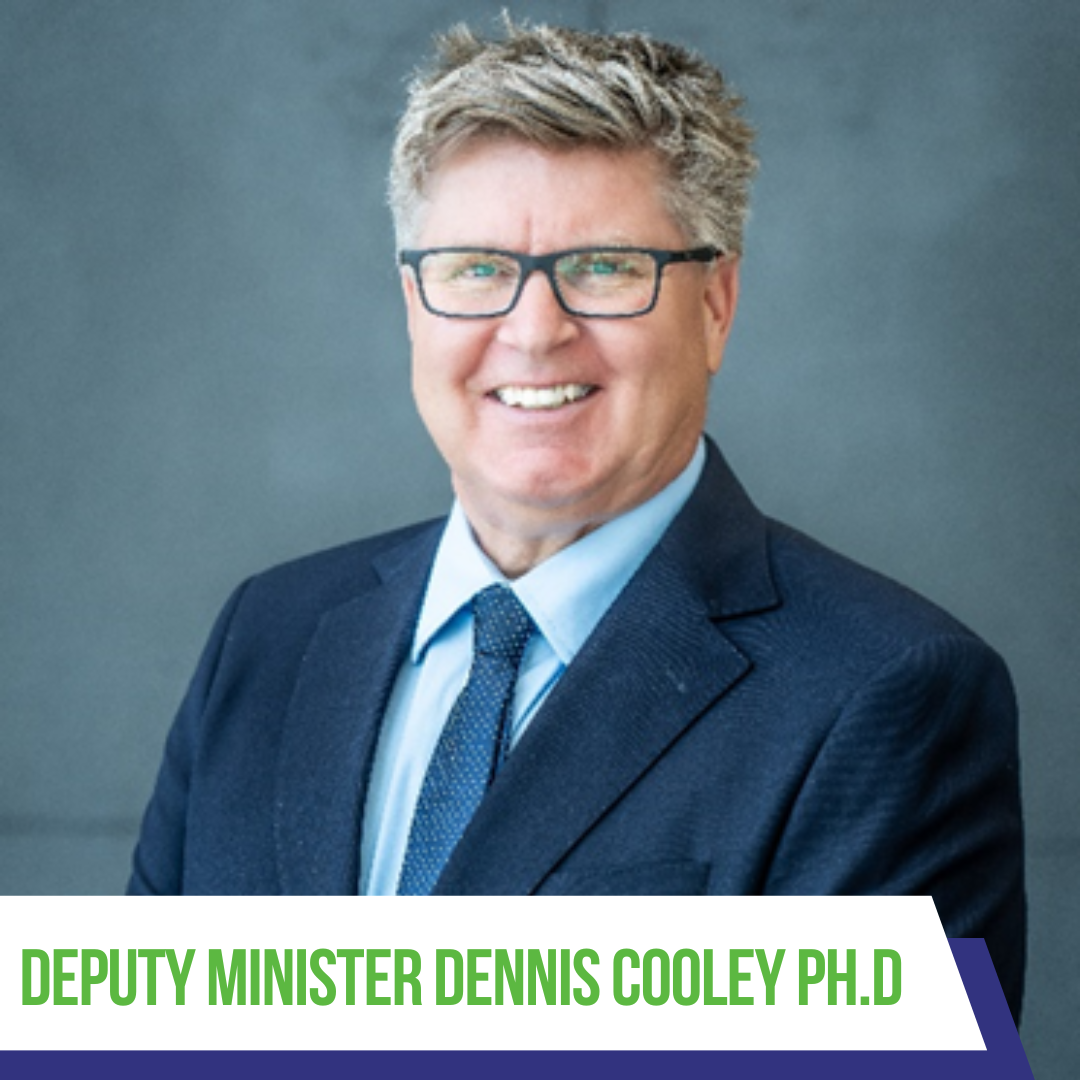
Dennis Cooley was appointed Deputy Minister of Justice, Government of Saskatchewan effective May 1, 2023. Dennis brings more than 20 years of executive management experience in justice and correctional fields with federal, provincial and territorial governments. Prior to taking on this role, Dennis worked in the Government of Alberta from 2017 to 2023, first as Associate Deputy Solicitor General and then as Deputy Minister of Public Safety and Emergency Services. He previously worked as Deputy Minister of Justice in the Government of Yukon from 2004 to 2012 and Associate Deputy Minister of Corrections Policing and Public Safety in the Government of Saskatchewan from 2012 to 2017. Dennis began his career in the federal public service, working in Statistics Canada, the Correctional Service of Canada and with the Law Commission of Canada.
KEYNOTE SPEAKER
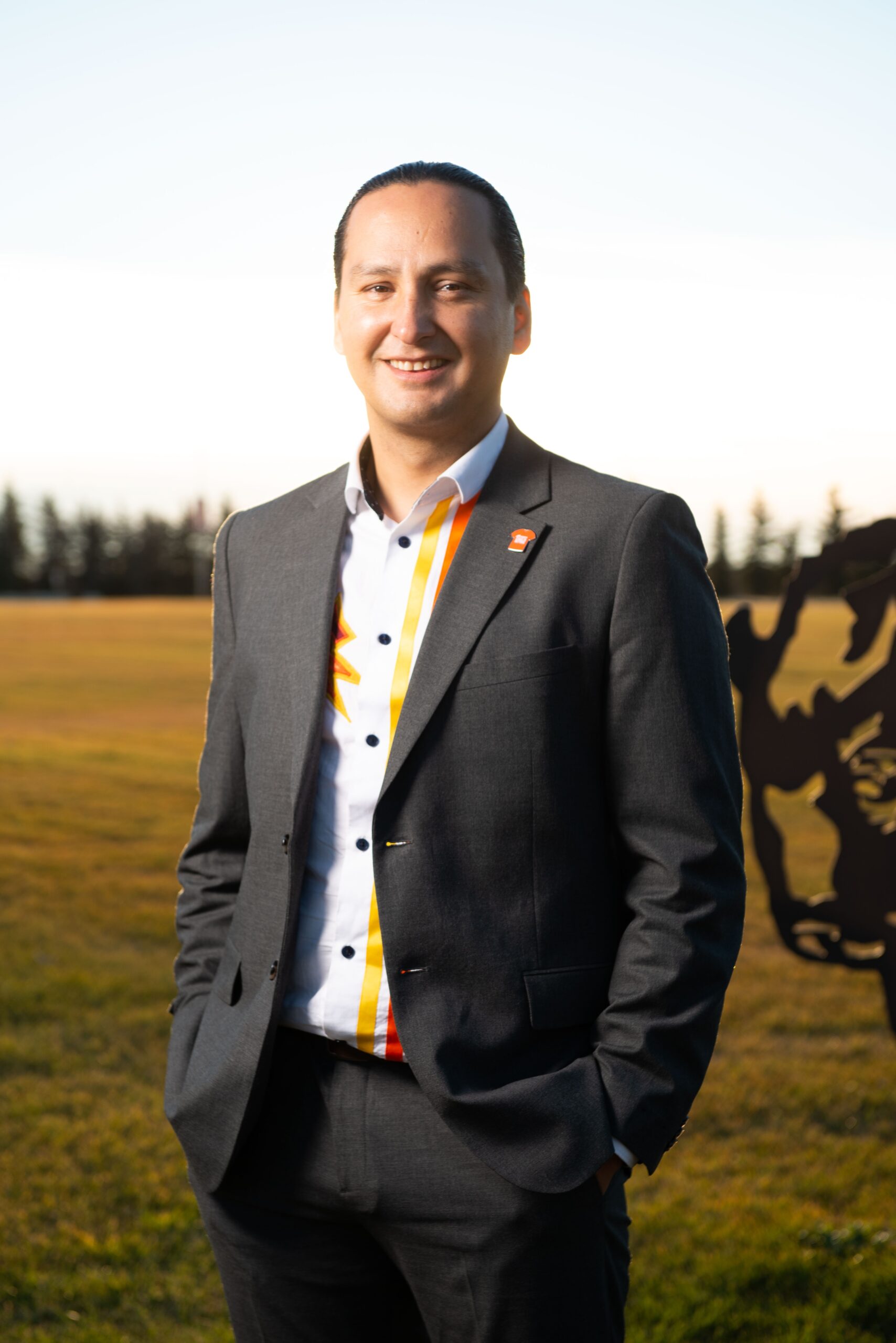
Cadmus Delorme, a Cree and Saulteaux, was the Chief of the Cowessess First Nation. Mr. Delorme graduated from Cowessess Community Education Centre in 2000. He later moved to Regina to pursue a Bachelor of Business Administration and a Certificate in Hospitality, Tourism and Gaming Entertainment Management from the First Nations University of Canada (FNUniv), and a Masters of Public Administration from the Johnson Shoyama Graduate School of Public Policy. Recently, he has completed an Institute of Corporate Directors designation.
In 2012, Mr. Delorme received the Queen Elizabeth II Diamond Jubilee Medal for his hospitality in walking with King Charles III and Queen Camela when they visited First Nations University of Canada in 2012 and in 2022, Mr.Delorme received the Queen Elizabeth II Platium Jubilee Medal. In 2015 he was named one of CBC Saskatchewan’s Future 40, which celebrates the province’s new generation of leaders, builders and change-makers under the age of 40.
In 2016, Mr. Delorme was elected Chief at the age of 34. In 2019, Chief Delorme was re-elected to a second term in office. Under his leadership, Cowessess First Nation has focused on economic self-sustainability for its nation and people and has moved forward on renewable energy, agriculture, efficiency in land use initiatives that have created both current and future business opportunities. Also under his leadership, Cowessess First Nation focused on political soverengty and has moved forward on Child Welfare Reform, empowering full jurisdiction when it comes to child protection, prevention, and the wellbeing of the entire family.
In 2021, Mr. Delorme faced one of the hardest moments as Chief when the Saulteaux and Cree First Nation made headlines with the validation of unmarked graves near the former Marieval Indian Residential School. Shortly after, Cowessess made headlines again as the first First Nations to sign an agreement with Ottawa and the province that returns jurisdiction over children in care to the First Nation. Federal legislation overhauling Indigenous child welfare was passed in 2019 and came into force last year.
In 2023, Mr. Delorme did not seek a third term as Chief of Cowessess First Nation. Mr. Delorme accepted two chair governance positions, the University of Regina Board of Governors and the Government of Canada Indian Residential School Documents Advisory Committee.
Mr. Delorme lives with his wife Kimberly, brother-in-law, daughter and two son’s on Cowessess First Nation
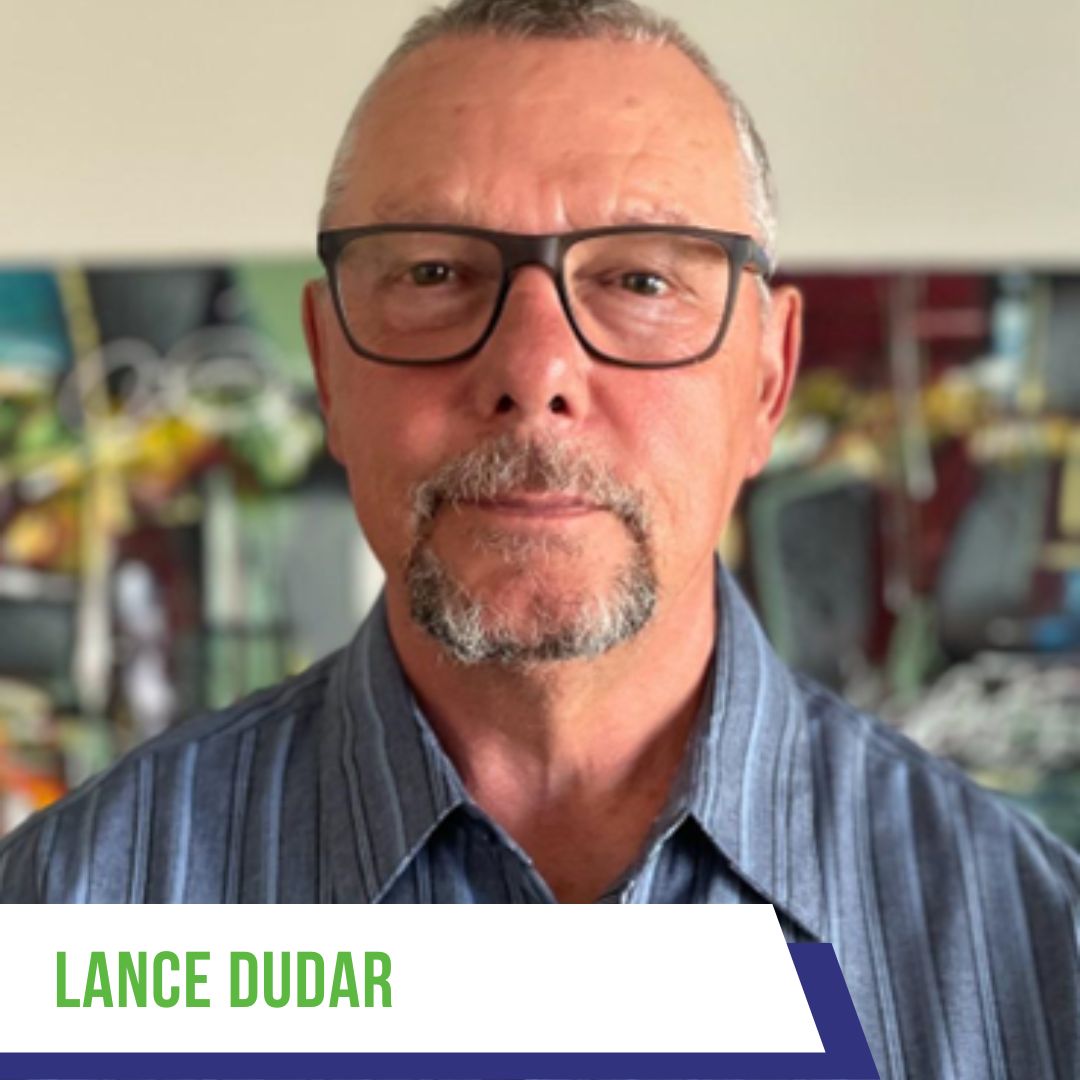
Lance spent 28 years with the Regina Police Service serving in many capacities; Patrol Division, Traffic Division, Detention Unit, Strategic Services, School Resource Officer, Community Service Centre, Recruiting Officer, Watch Commander, Inspector i/c Central Operations, Human Resource Manager and Superintendent i/c of Community Services Division. During his career he has been involved in the development and implementation of a number of programs, such as the Regina Police Service - University of Regina Human Justice Practicum Program, The Treaty Four Citizens' Police Academy, The Regina Police Service Mentorship Program and The Eleven and Under Initiative. Was also involved in the development of the Saskatchewan Police Aboriginal Recruiting Committee. (SPARC).
Lance was a member of the Board of Directors and the Rainbow Youth Centre from 2001 – 2007, sat on the Sask Sport Indigenous Sport Leadership Council from 2017 to 2020, was the Sask Sport Board of Directors Secretary Treasurer in 2020 and moved to the Chair of the Sask Sport Board of Directors in 2021.
Lance has received numerous awards over the course of his police career, including a prayer stick, star blanket and eagle feather for his work in the Indigenous community. Most recently Lance received the Queen Elizabeth II Platinum Jubilee Medal.
After retiring from the Regina Police Service Lance was the Coordinator of The Regina intersectoral Partnership (TRiP) from 2014 to 2023.
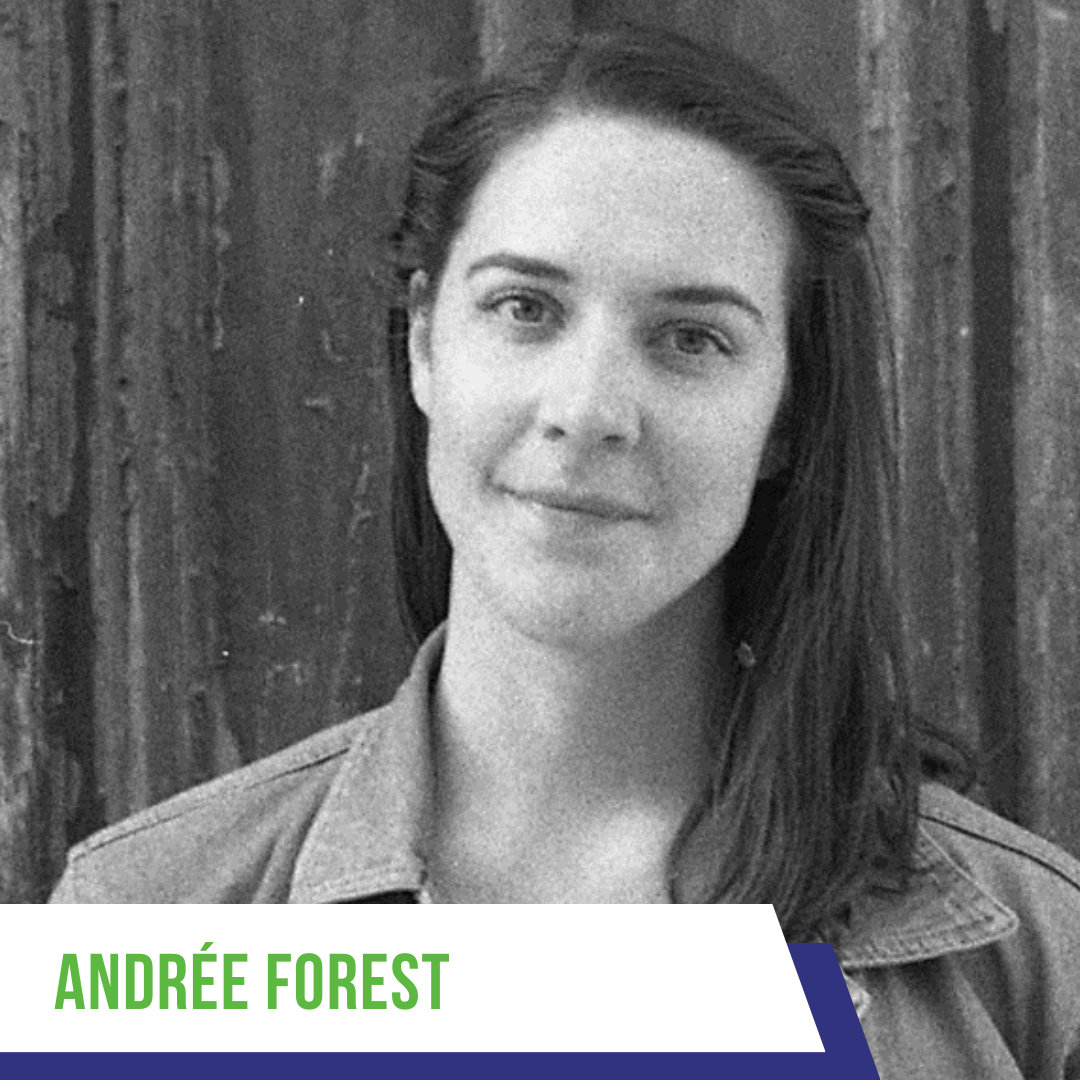
Andrée Forest is the City of Winnipeg’s Administrative Coordinator of Safety and Well-being, a position created in 2022 to facilitate collaboration between governments, municipal departments, other sectors, and residents, in the broad interest of a safer Winnipeg. She comes to this role with a Masters in Public Administration from Queen's University and years of varied public sector and non-profit work including at the University of Winnipeg, Province of Manitoba, Canadian Museum of Human Rights and the Canadian Centre for Policy Alternatives. She is committed to understanding and addressing past and present day impacts of inequitable laws and policies that impact people’s lives. She was born and still lives in St. Boniface, Winnipeg (Treaty 1 Territory) and is rooted in her Métis community through governance, writing, and a love for hide work.
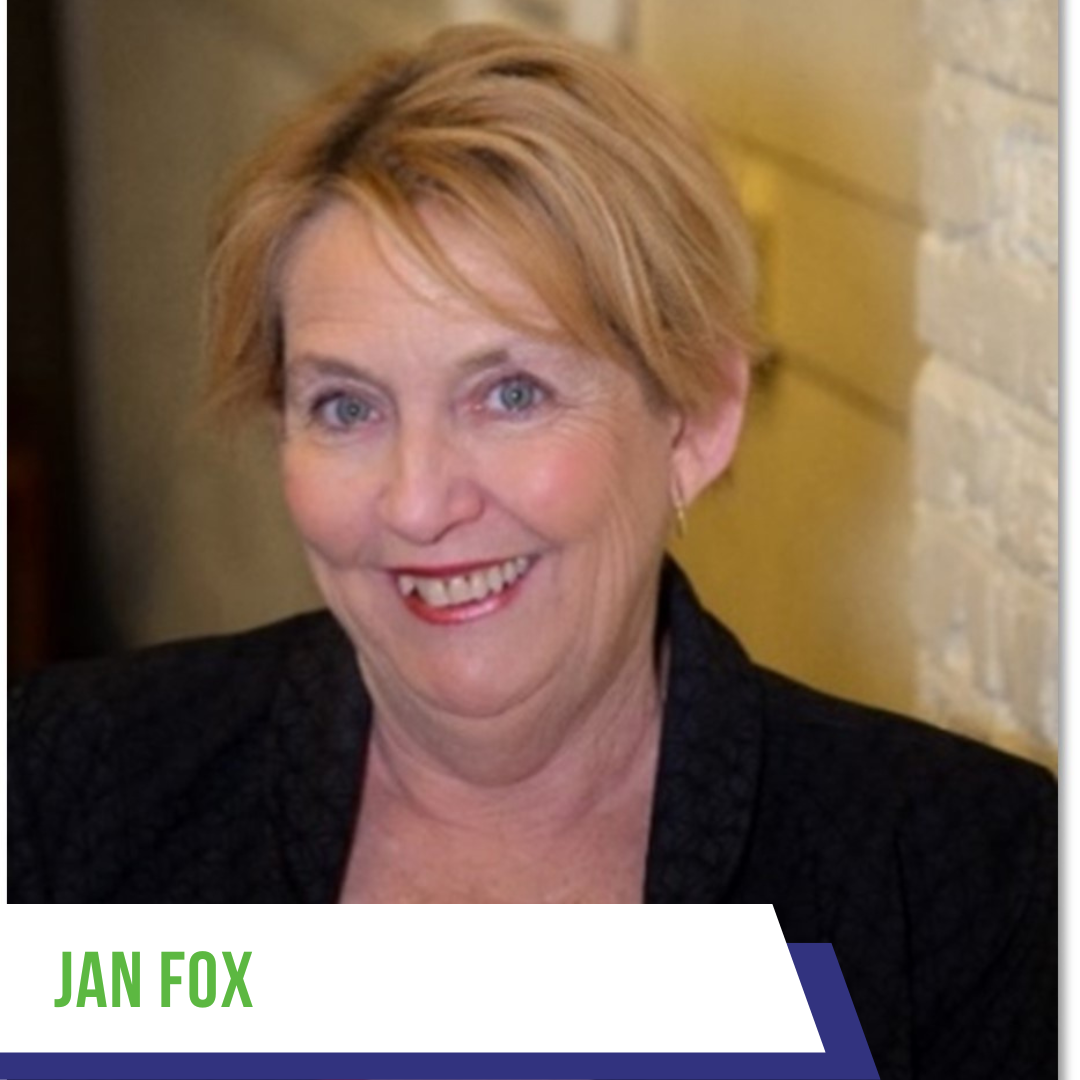
As Executive Director for REACH Edmonton Council for Safe Communities, Jan believes the best solutions come from community. She was a driver in establishing the Alberta Office to Combat Trafficking as well as the Provincial #NotinMyCity Provincial Network that she now co-chairs. She also served on the Alberta Human Trafficking Task Force. Outside REACH, Jan co-chairs the Canadian Municipal Network on Crime Prevention (CMNCP), represents Edmonton in the global Peace in Our Cities network, and leads the new Rotary Indigenous Committee. She is also a consultant with Robcan Group. Previously, Jan managed labour relations issues with the Government of Canada, and was warden at the Edmonton Institution for Women where she founded Women in Police and Corrections.
Accolades include the YWCA Lois E. Hole Lifetime Achievement, Women of Vision Award, Association of Professional Executives Partnership Award, Institute of Public Administrators Teamwork Award, and the Queen’s Platinum Jubilee Medal.
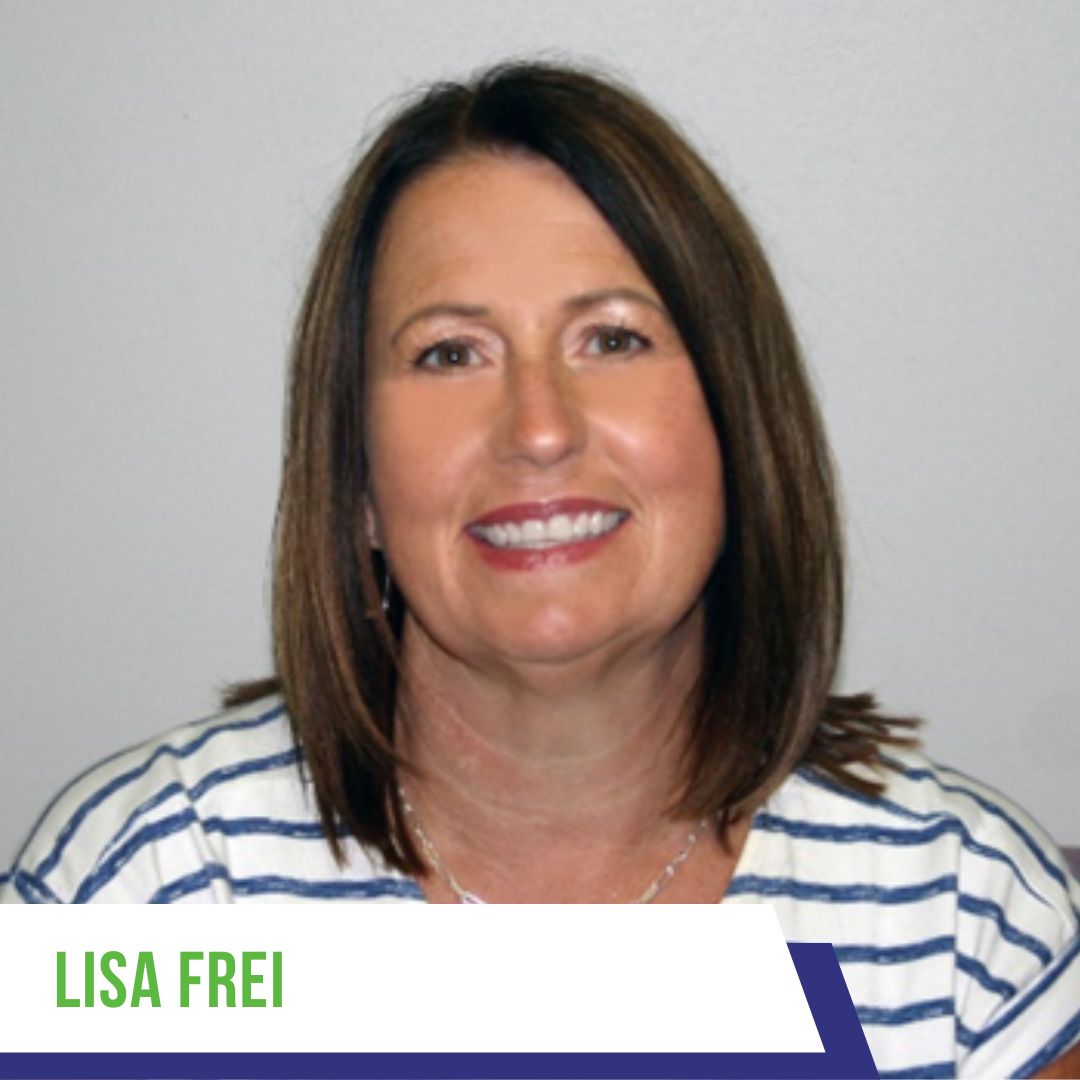
Lisa Frei is honored to be the new coordinator of TRiP. In June 2023, Lisa retired from Regina Public School Division after 32 years of service. She was a classroom teacher, vice-principal, principal and superintendent. Lisa’s experience in the education sector, passion for community engagement and dedication to advancing collaborative partnerships are beneficial to the continued work of TRiP. Lisa looks forward to facilitating connections and collaborations among various stakeholders, government agencies and community organizations.
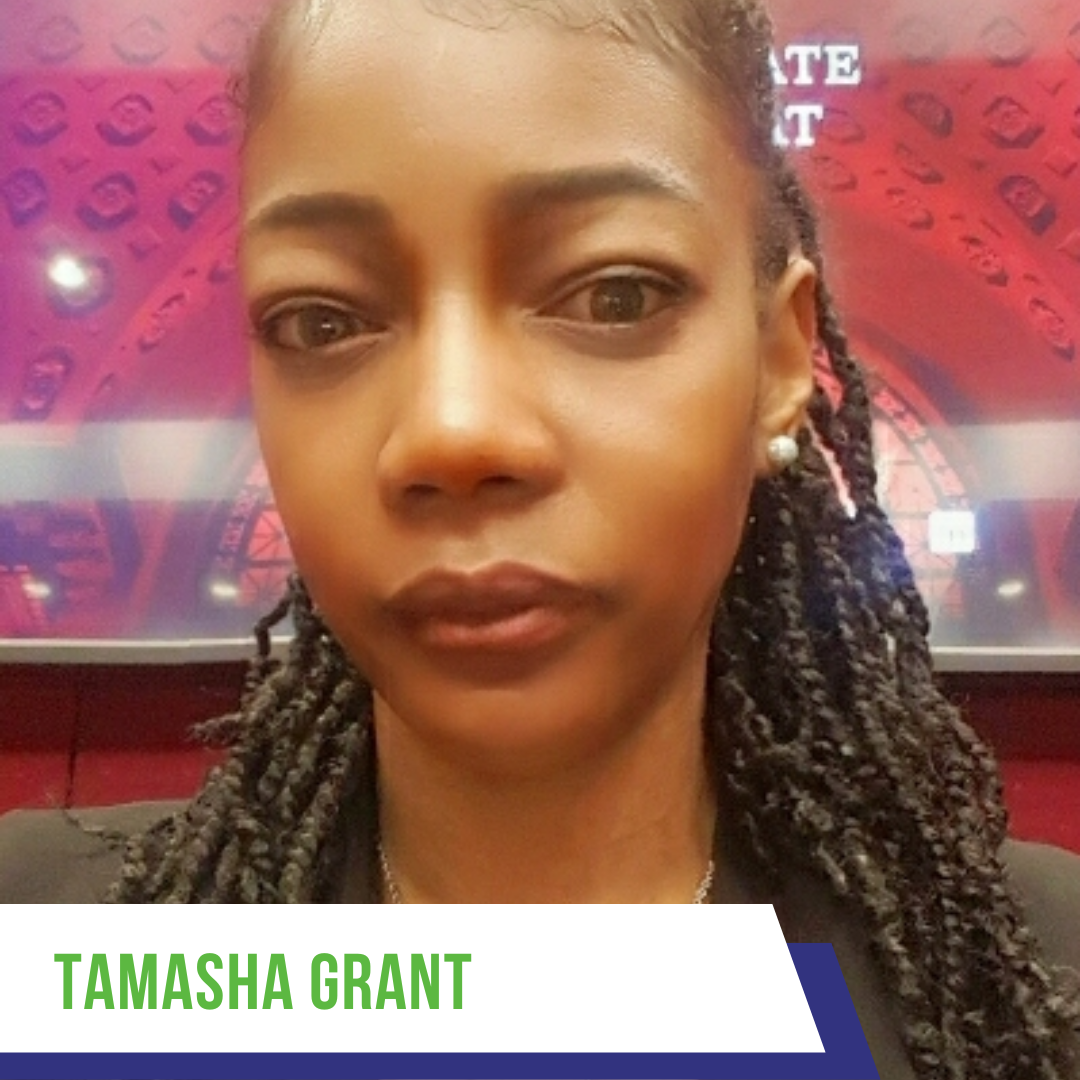
A driven visionary, community activist and impassioned social justice advocate who empowers and mobilizes residents to make communities stronger, Tamasha Grant, a mother of two kings, brings 20+ years’ experience in the community development and violence prevention and intervention space. From her role as a change agent working within the gray areas to remove systemic barriers in communities by bringing awareness to the racial disparities in systems where racialized people are disproportionately impacted, Tamasha is the lead consultant for Nubian Rising Consultation Services which supports institutions, not for profit and grassroots organizations develop community safety and wellbeing strategies along with building and strengthening their infrastructure utilizing anti-Black racism, anti-oppressive, trauma informed approaches to better support Toronto’s most vulnerable communities. She holds a degree in Psychology, certificates in Global Action and Engagement and Early Childhood Education, serves as Chair on the Board of Directors for Jane Finch Community Tennis Association, is an active member of the Partnership and Accountability Circle (PAC) that supports the implementation of the actions of the Confronting Anti-Black Racism Action Plan, Ward Representative for the Parent Involvement Advisory Committee, and School Council Safety lead for the Toronto District School Board.
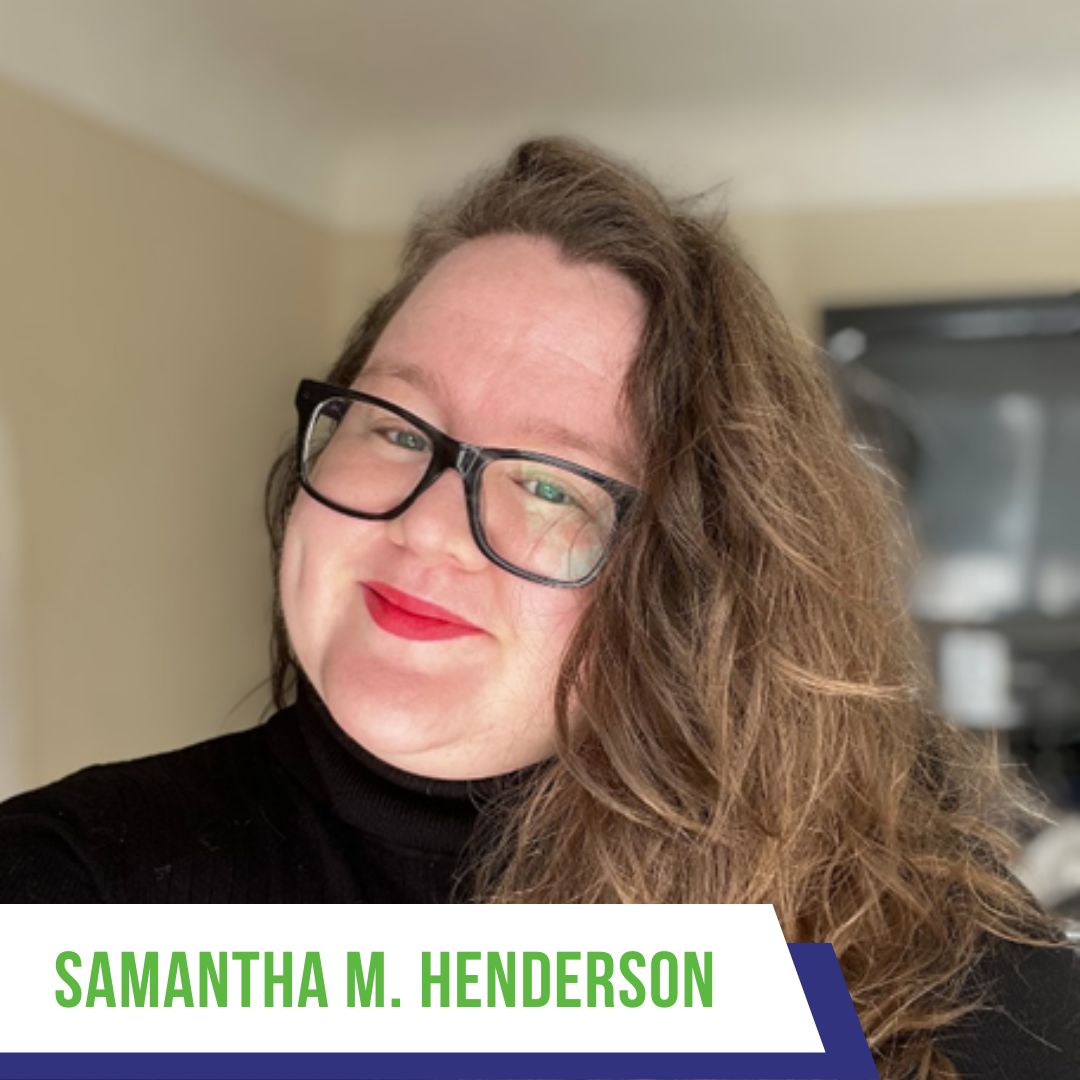
Samantha M. Henderson is the Project Coordinator at the Wilfrid Laurier University Centre for Research on Security Practices in Brantford, Ontario. She holds a PhD in Criminal Justice from the University of Cincinnati, with a specialization in Crime Prevention. Her research focuses on crime prevention, community safety, and crime and place.

Albert Robillard is a Metis elder from Lebret Sk. Albert and is very involved within the Métis community and its rich history. He is an advocate for Metis culture and the michif language. Albert has served on many boards particularly Regina Public Schools Indigenous Elders Advisory Committee.
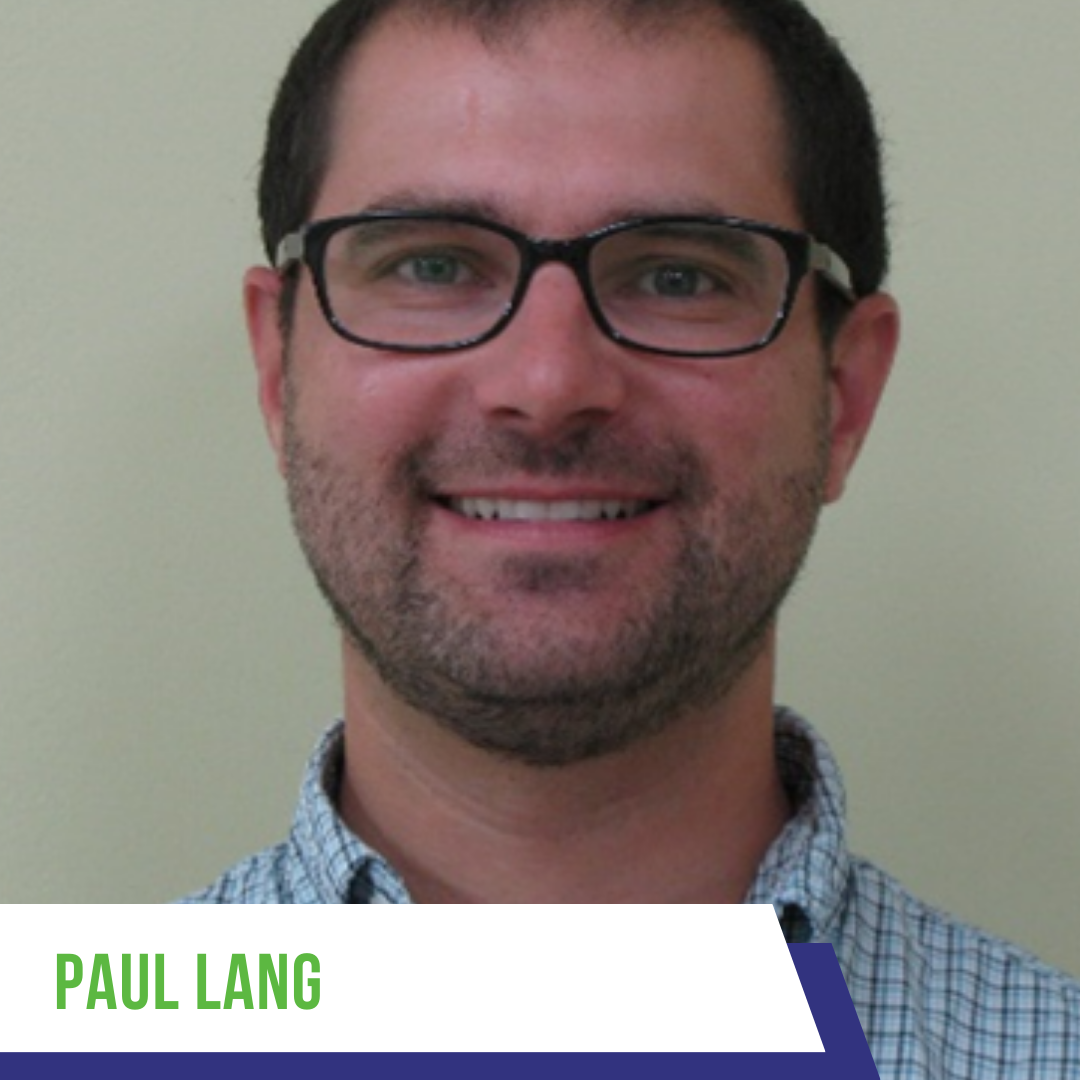
Paul is the Executive Director of the Kent Regional Service Commission since January 2013. Paul loves working for the Kent Region as one of the most rural regions in the province. He understands the importance of collaboration and is constantly working with various stakeholders and partners to improve the quality of life of the people of Kent.
Paul holds a bachelor’s degree in social sciences, majoring in Political Science with a minor in Economics from the Université de Moncton; he has a master’s degree in Regional Development from the Université du Québec à Rimouski. He also holds the NACLAA Certificate, the Ec.D accreditation and is the only local government administrator outside the province of Quebec to hold the “Directeur municipal agréer” designation. He was fortunate to be chosen as one of the 15 Acadian leaders that will influence change in New Brunswick in the future: he’s an alumnus of the New Brunswick 21 Inc. leadership program, and the National Leadership Program of Action Canada.
He is married to Danielle Doucet, a researcher in youth psychology and education at Université de Moncton and the father of Thomas, a 7-year-old boy who just like his parents enjoy life fully.
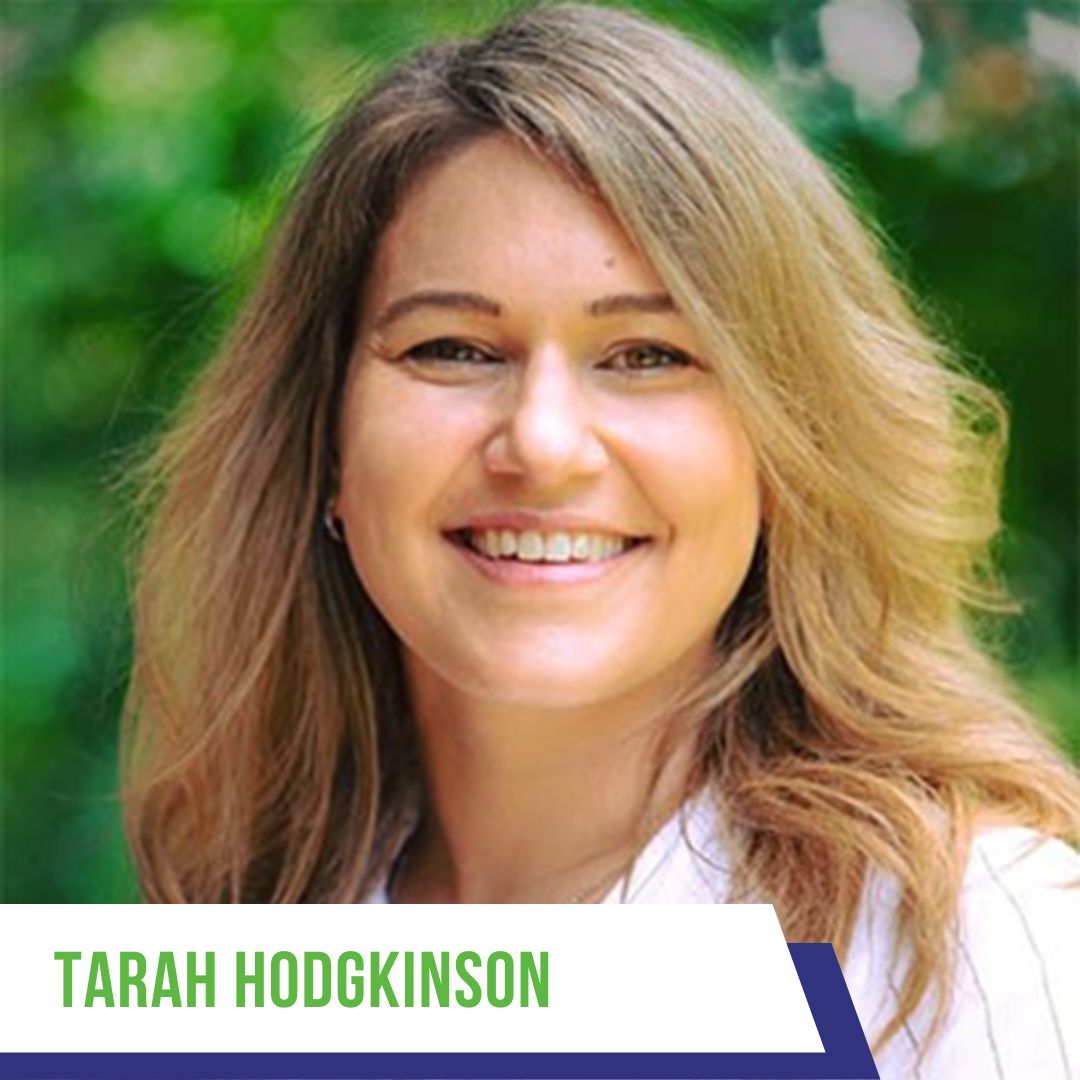
Dr. Tarah Hodgkinson is an assistant professor in the department of Criminology at Wilfrid Laurier University. Her areas of expertise include crime prevention, policing, and spatial criminology. She is also a SafeGrowth practitioner has worked with neighbourhoods and cities across North America and Australia for the last decade to co-create crime prevention strategies and evaluate their outcomes. Tarah also works closely with several Canadian police services on issues related to community safety, crime prevention, performance assessment, strategic planning, and oversight. As a "pracademic," Tarah spends her time bringing together research and practice in an attempt to make communities safer and more inclusive places for all.
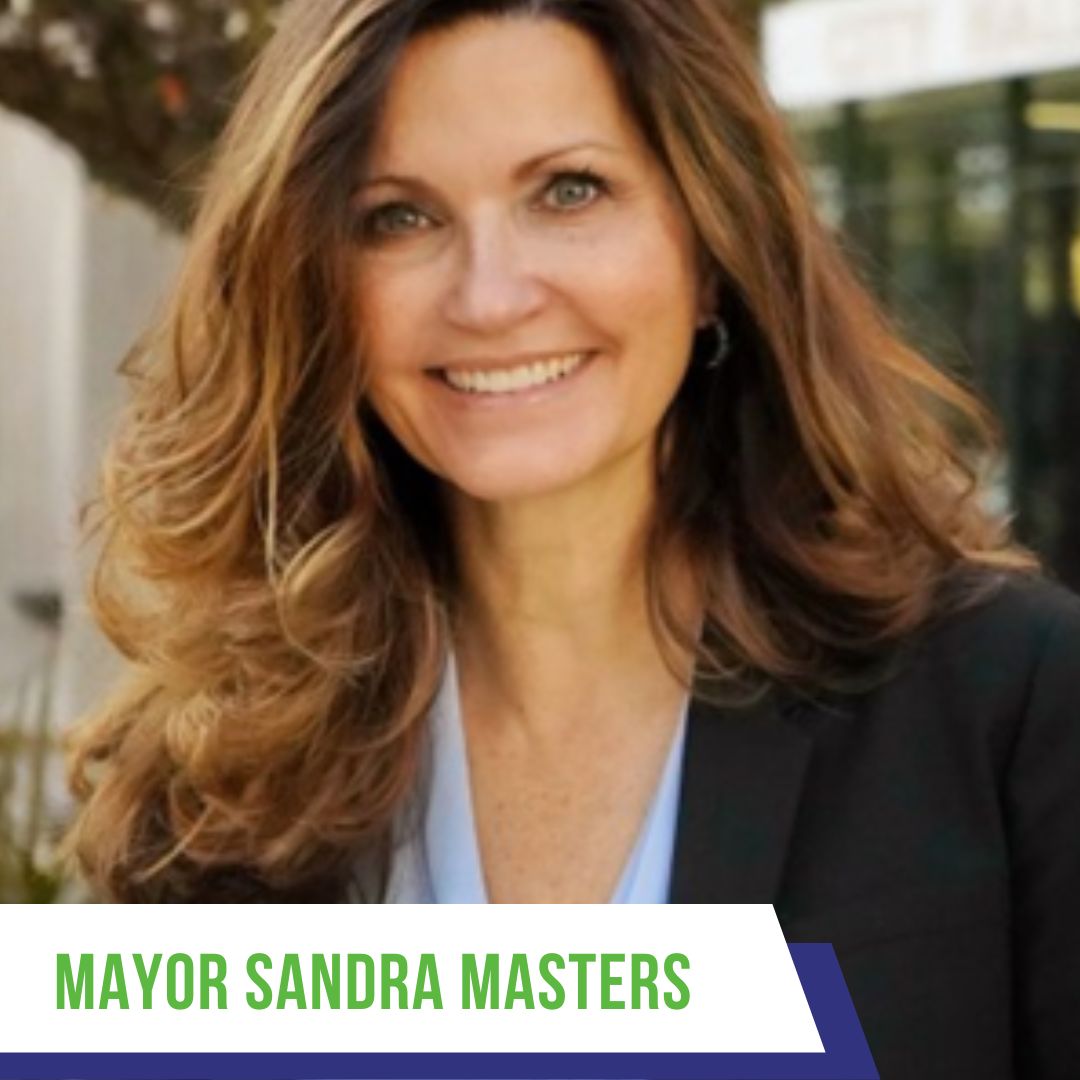
Sandra Masters made city history by becoming the first woman elected Mayor when sworn in as the 35th Mayor of Regina. Proudly Saskatchewan, Mayor Masters grew up in the prairies and has called Regina home for more than 23 years. She is focused on efficient and effective city operations, fostering an environment for economic growth, supporting a safe community, and creating fair opportunities. Mayor Masters is passionately and energetically optimistic about Regina’s future and the outstanding people who choose to call Regina home.
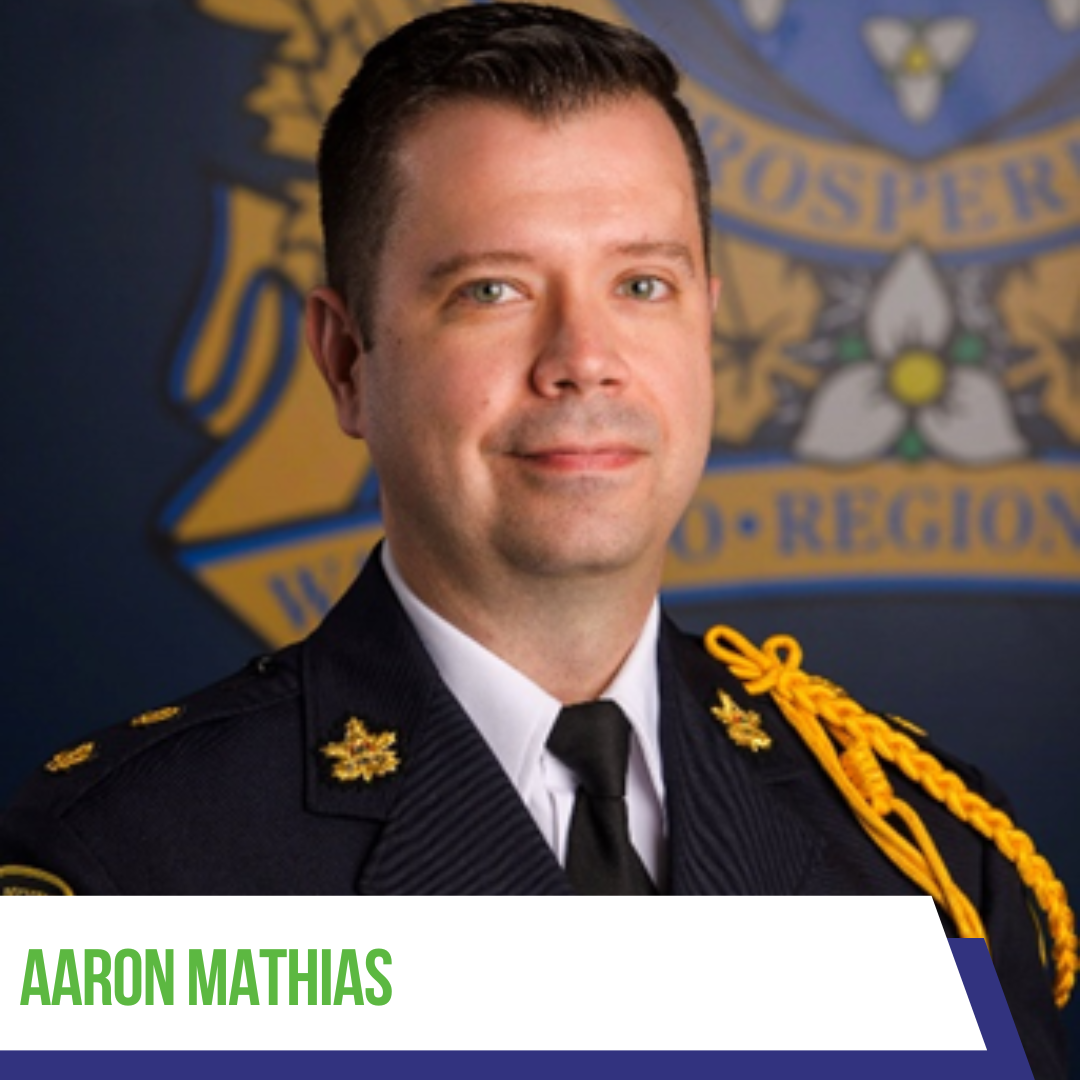
Inspector Aaron Mathias began his career with the Waterloo Regional Police Service in 2006, and currently oversees the portfolio of Community Safety Partnerships. He brings experience and insight from his time in frontline Patrol, Detectives, Major Crime and most recently leading the Waterloo Regional Police Service Wellness Unit.
Aaron holds a bachelor’s degree with a concentration in Law and Justice from Laurentian University and earned a certificate in Psychological Health & Safety from University of Fredericton. He is a member of the Waterloo Region Alternate Destination Clinic Steering Committee and sits on the Board of Directors for Victim Services of Waterloo Region.

Cheryl is a proud Métis woman who has recently relocated from Saskatoon to Regina. Her educational background includes advanced training in business management, as well as computer systems technology, two complimentary areas of study that merge systems thinking with organizational behaviour. Over the past eighteen years she has had the privilege of working with Indigenous and nonindigenous communities through the non-profit sector in sport, recreation, physical activity, education, and health. For her, the chance to learn from others and build relationships to advance opportunities for Indigenous children and youth has been a humbling experience. Her leadership in the corporate environment, where she has developed and supported others in the areas of customer service and sales, is equally strong. Recently, her combined passion for Indigenous community development and strategic management inspired her to resign from a full-time position to pursue independent consultancy. This move allowed her the freedom to focus specifically on reconciliation initiatives, which she sees as contributing directly to the development and enhancement of impactful initiatives led by Indigenous communities. Cheryl is both humbled and excited to bring her experience to Community & Social Impact Regina and advance the priorities to serve the needs of the community.
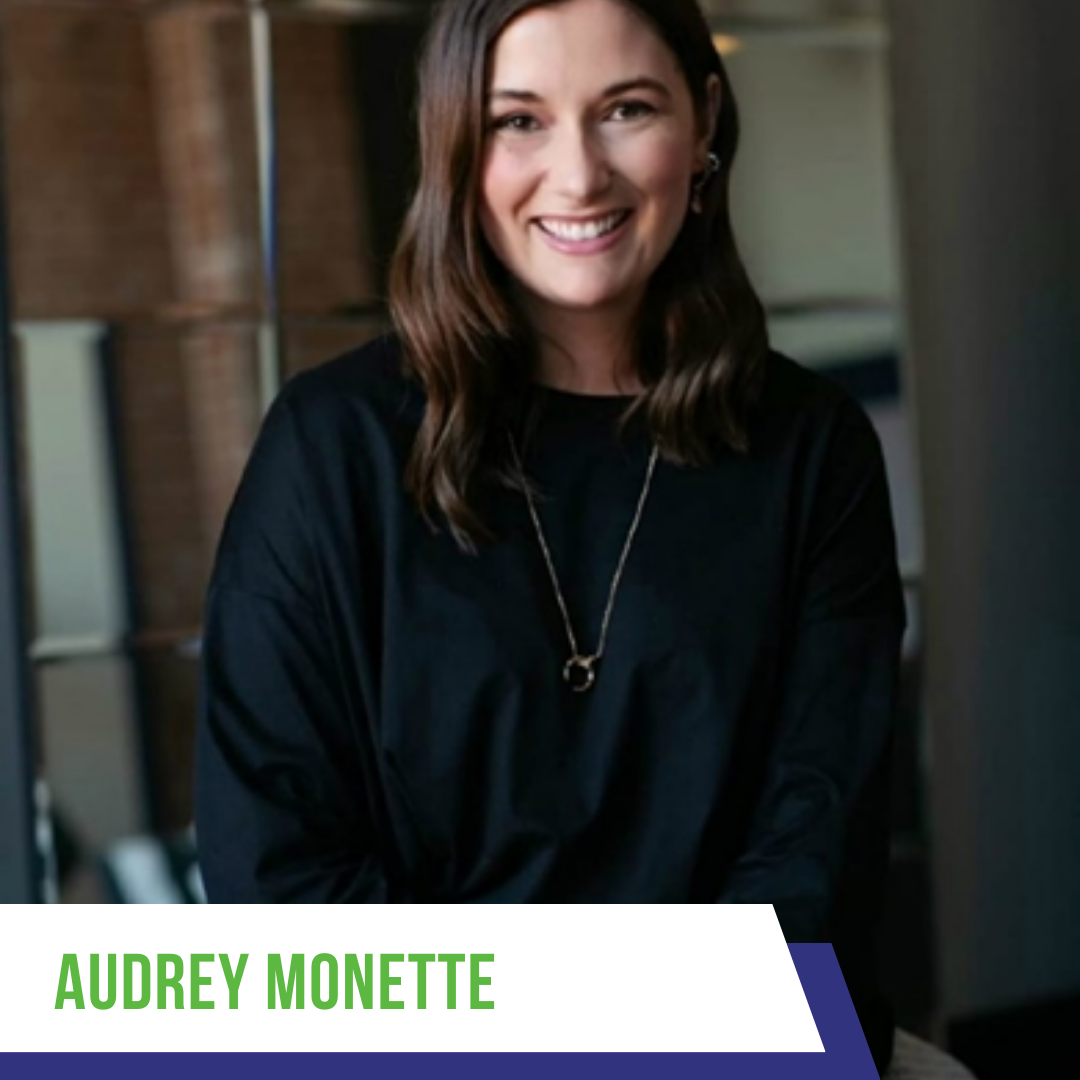
Audrey joined CMNCP in 2016. She leads diverse projects related to community safety and well-being (CSWB), including facilitating training sessions, conducting research, and developing CSWB plans. With a master’s degree in critical criminology, she advocates for non-carceral approaches to ending gender-based violence, preventing victimization, and improving victims’ and prisoners’ rights. She is also a member of the University of Ottawa Crime Prevention Team where she leads research and knowledge mobilization initiatives. Audrey is passionate about community-led approaches to safety and well-being that are rooted in equity, social justice, and dismantling systems of oppression.
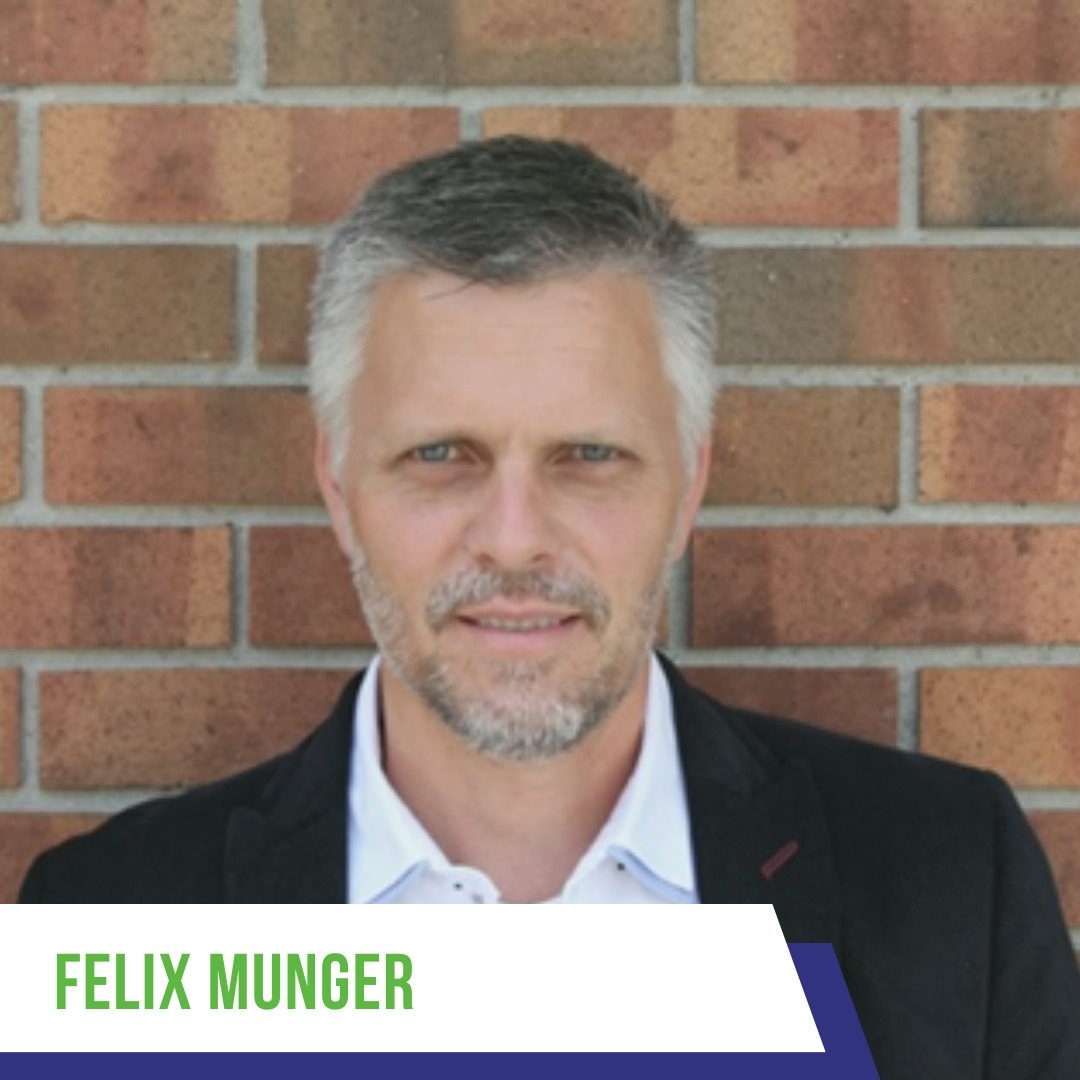
Felix joined CMNCP in 2015. He brings experience as a mental health and addiction clinician, program planner, and evaluator. He has over 20 years of experience facilitating strategic planning, priority setting, and collaboration building across Canada with a wide range of stakeholders including equity-deserving and Indigenous communities. Originally trained as a psychiatric nurse, he has experience in community safety, organizational collaboration, addiction (including harm reduction), EDI (equity, diversity, inclusion), and organizational capacity development. He holds a master’s degree in environmental studies and a PhD in community psychology. Most recently, his work focuses on the impacts of climate change on community safety at the local level.

The Napwesak (Nah-pay-suck) drum group is comprised of a group of friends from the Treaty Four and Six Territories. They take pride in sharing their songs and culture which is enriched with history.

Dr. Chad Nilson is a community-based researcher, initiative strategist and evaluator. He is a long-time advisor to various organizations and government agencies in multiple jurisdictions. Over the years, he has made contributions in the areas of crime, homelessness, radicalization, violence, addictions, gender inequality, and family distress. Chad is known as one of Canada’s leading experts in community safety and well-being. In fact, Chad’s developmental evaluation work has shaped much of the conceptualization, discipline and language now used in implementation and measurement of the Hub Model, Situation Tables, and Intervention Circles across the country. Chad continues to support the development, measurement, and refinement of multi-sector collaborative human service delivery.

Margaret Rockthunder is from the Piapot First Nation, she is a respected well-known active leader who has made many contributions both within and beyond the Indigenous Community. Margaret is very passionate about language, cultural awareness and sharing her knowledge about Indigenous ways of knowing. Margaret has spoken and presented at various events across Saskatchewan and continues to be an advocate in showcasing, sharing, and creating cultural awareness for her people, among his many other community leadership endeavors.

Silvia Seibert-Dubray is the Well-being and Safety Plan Coordinator for the City of Williams Lake for the past two and half years. As an educator, in her roles as a High School Principal and Director of Instruction for the Cariboo Chilcotin School District she partnered with the RCMP and City on many projects including creating a school for youth who were associating or entrenched with local gangs and establishing a Violence Risk Threat Assessment Protocol that merged SD27 with the RCMP, Interior Health – Mental Health, Hospital, Ministry of Children and Families and the City, sharing a protocol ensured that full wrap around support could be provided. Specializing in safety for youth and families became a passion for her. After retiring from Education in 2020, a contracted posting for her current position from the City of Williams Lake was an exciting offer. I had many new things to learn but established connections and desire for the Leadership group to make a difference has accelerated the drive to move the Well-being and Safety Plan, created by the community in 2019 forward. By focusing on the diversity of strengths in our community agencies and increasing collaboration among them, there has been a remarkable difference in the services provided to our most vulnerable citizens and to the health of our frontline workers.
When she’s not working, Silvia loves spending time with family, which now includes three grandsons. The outdoors is her place of sanity and she spends a lot of time walking, hiking, skiing, and exploring outdoor wonders in BC and Alberta. She loves to travel and is very excited for her next adventure which is a cruise down the Nile to discover many of the wonders of Egypt.
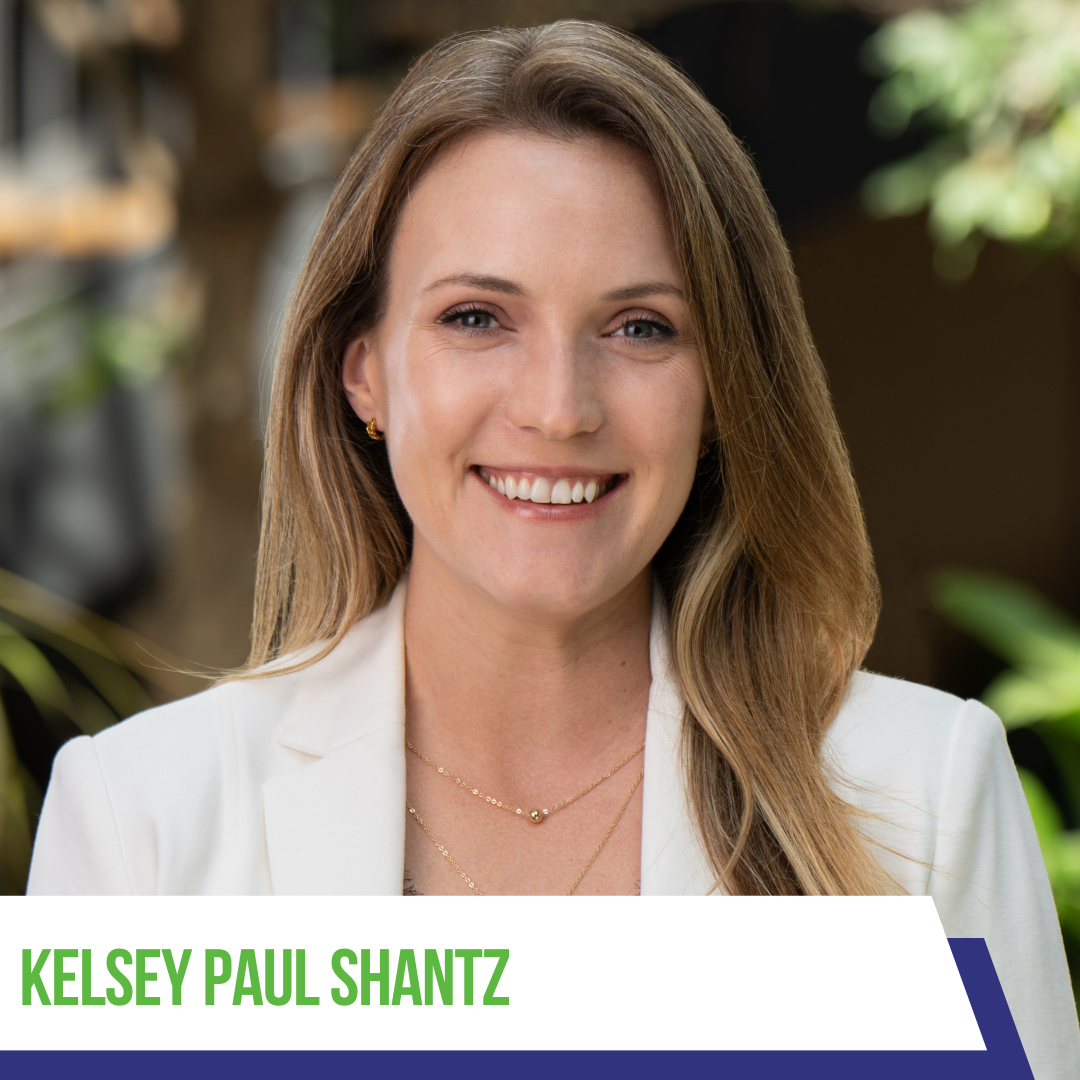
Kelsey Paul Shantzis a program officer for mass violence and atrocities at the Stanley Center for Peace and Security and a co-facilitator of the Peace in Our Cities Network. She partners to prevent identity-based violence by creating and sharing evidence and by bringing together global networks of policy leaders, government representatives, and members of civil society on violence prevention strategies. Paul Shantz's experience bridges development, peacebuilding, and security. Before joining the Stanley Center, Paul Shantz developed research on global economic governance, defense and security, and microfinance for think tanks and research institutions in Canada, the United States, and the Netherlands. She has an MA in international relations from the Maxwell School of Citizenship and Public Affairs at Syracuse University and an MPP from the Hertie School of Governance in Berlin, Germany. She also has a BA in international studies from the University of Evansville.
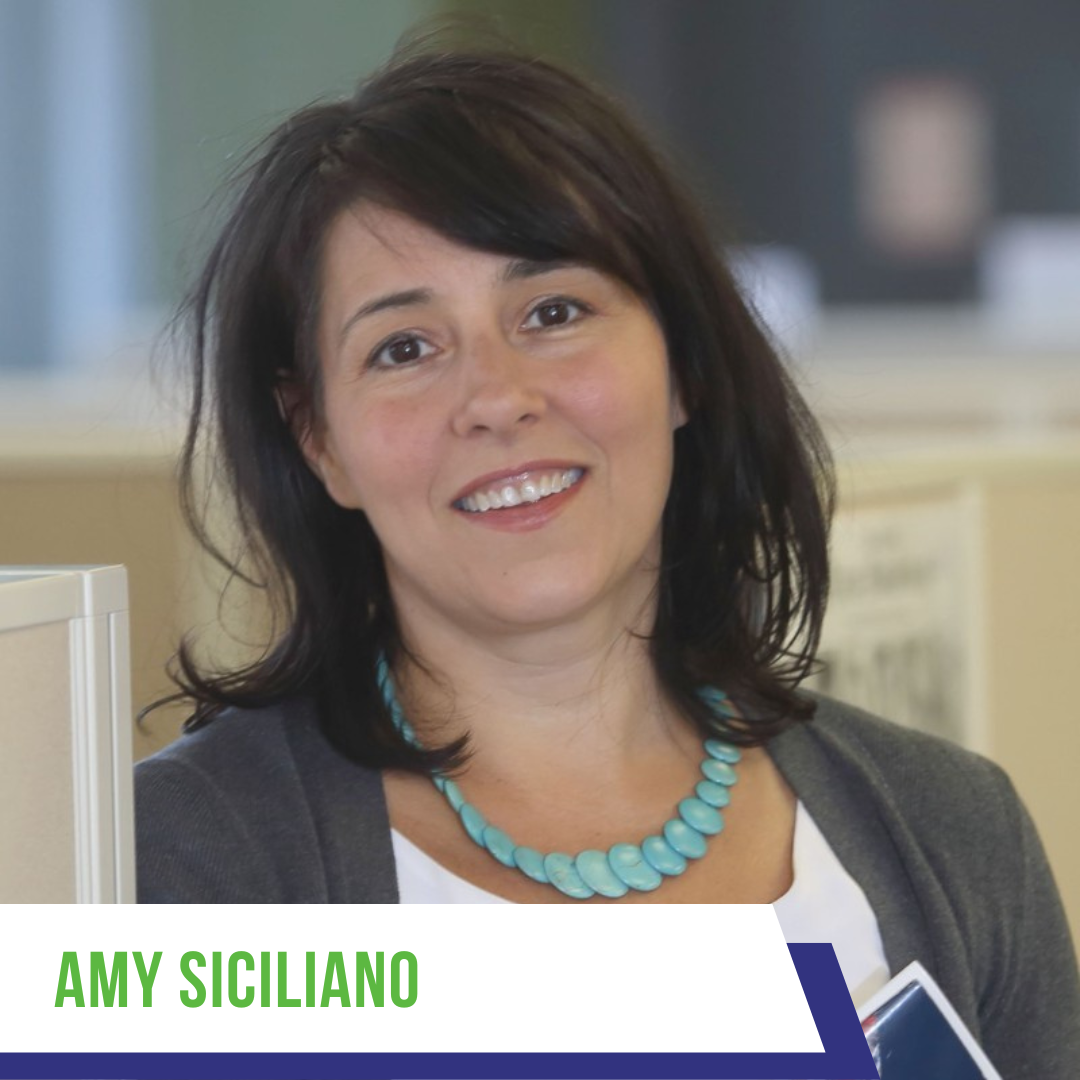
As Public Safety Advisor for Halifax Regional Municipality, Amy leads the municipality in its journey toward holistic, collaborative approaches to community safety. She brings a human-rights lens to her work, rooted in principals of accountability, inclusion, and social and economic equity. She is passionate about championing community-led solutions to local problems and finding creative ways to harness the inherent strengths of community. With a PhD in Urban Geography, she is well skilled at synthesizing local experiential knowledge with scientific research to bring a robust evidence-base to decision-making. Her most important job is mom to her two boys.

Dave Slater is the Manger, Community Well-Being for the City of Regina, and is responsible for the city’s role in community safety and well-being, houselessness, inclusion, and accessibility. Dave has worked for the municipality for 20 years in a variety of roles, including Neighborhood Centre Programmer, Program Specialist for Adapted & Senior Services, Community Consultant for Social Development and Social Inclusion, Coordinator, Social Inclusion, and Manager, City Projects. A highlight of his career was working alongside the community on the development of the City of Regina’s Community Safety and Well-Being Plan. Prior to working with the City of Regina, David held a variety of positions that saw him supporting individuals living with disability, including roles with the Saskatchewan Health Authority in the Recreation Therapy Unit, and as a Recreation Coordinator for the Saskatchewan Abilities Council. He completed both undergraduate and graduate degrees with the University of Regina’s, Faculty of Kinesiology. David’s academic career has been primarily focused on adapted physical activity, and inclusive & accessible recreation for people with disabilities, while his thesis was an autobiographical narrative inquiry dedicated to understanding his own experiences of working alongside the disability community, and ultimately his interests in establishing belonging within recreation and community spaces. David was born and raised in Regina, Saskatchewan, and lives with his wife Rayann, and two children, Norah & Oliver.
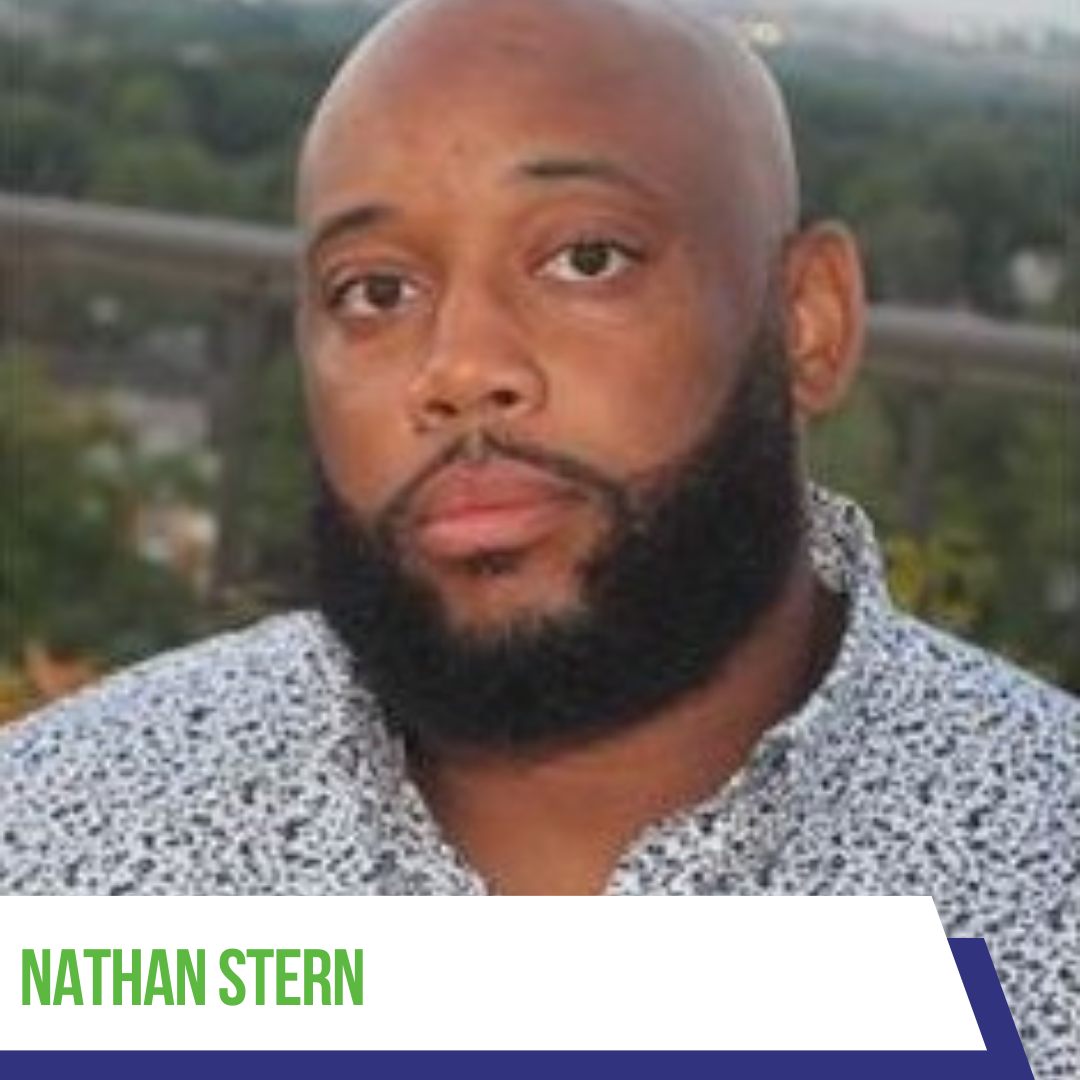
Nathan Stern serves as the Manager, Community Capacity and Funding at The Regional Municipality of York. In his time at York Region he has been responsible for spearheading the implementation of the York Region Community Safety and Wellbeing Plan. Through his dedicated efforts, Nathan has pioneered and established seven innovative Community Safety and Wellbeing programs in York Region, with a strong focus on fostering social development, prevention, and risk intervention programs in collaboration with diverse stakeholders.
Nathan boasts a wealth of experience in facilitating productive partnerships between government entities and community members to devise effective solutions for complex challenges.
His expertise extends to community capacity building, and he has also shared his knowledge through teaching at post-secondary institutions such as York University, Seneca College, Humber College, and the University of Guelph-Humber. In his leisure time, Nathan generously contributes to his local community by coaching track and field.
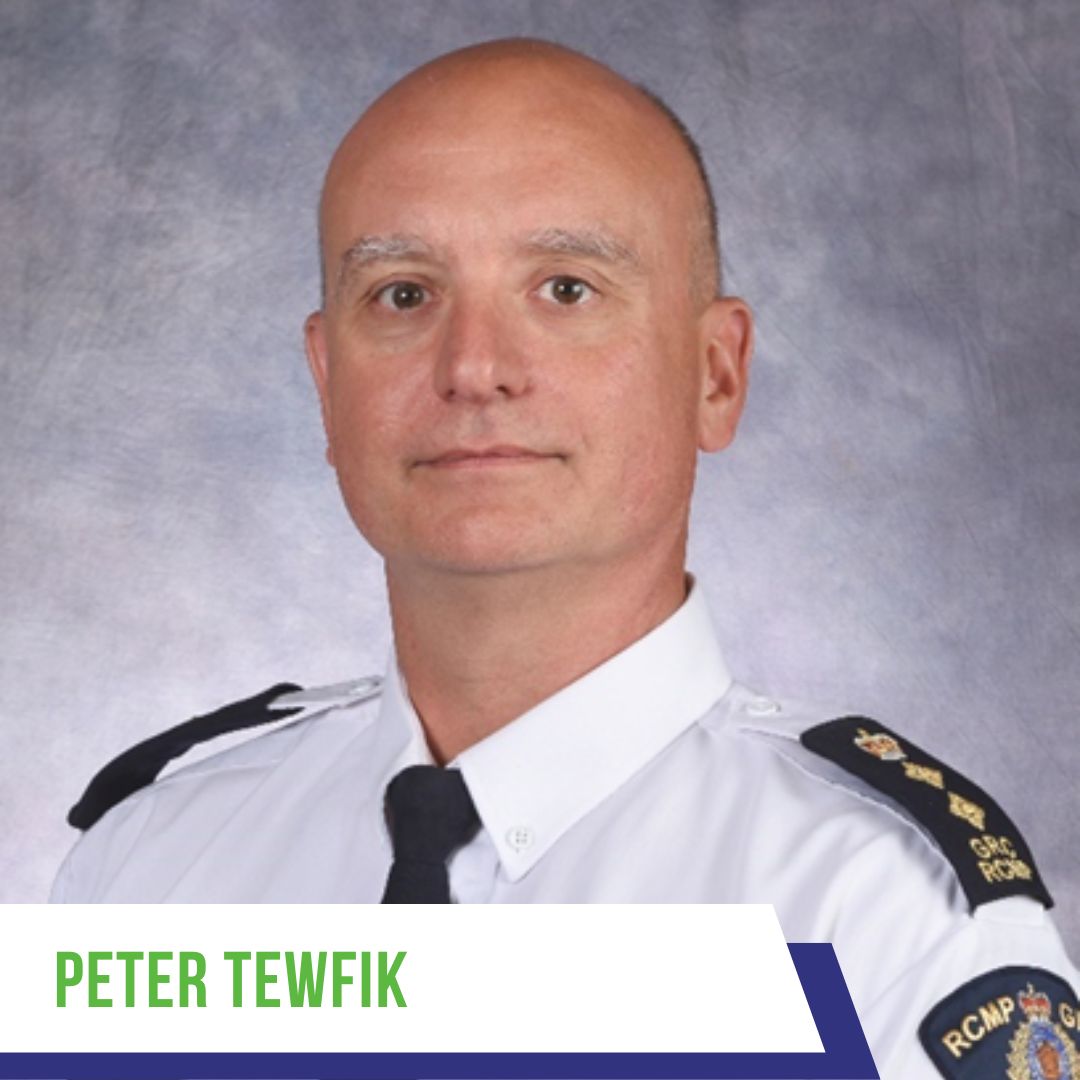
Chief Superintendent Peter Tewfik is the Officer in Charge of Community Safety and Well-being for the Alberta RCMP. He is passionate about collaborating with community leaders and police professionals across the province to identify issues contributing to community harm and developing strategies designed to reduce the multiple contributors to crime and victimization over the long term.
Before starting in this role, Peter was the Officer in the Charge of Crime Reduction Strategy for the Alberta RCMP. He worked with the district offices and detachments over 4 years building and refining initiatives and programs in a multi-year effort to reduce the impact of crime in rural Alberta between 2018-2021.
Peter has been awarded the Order of Merit of the Police Forces for leadership and exceptional service over an extended period. He was the recipient of the Meritorious Service Medal from British Columbia as well as the Commissioners Commendation for his contribution in developing a new investigative technique which has since been adopted by the RCMP and shared internationally.
He lives in St. Albert, Alberta with his wife.

At 18 years old, from Piapot First Nation, Kiana Toto is a jingle dress dancer for five years, preserving their culture's traditions and serving as a role model for future generations. In addition to their commitment to dance, Kiana is boldly enrolling in the Women of Steel Welding program. They are an inspiration to their community and beyond, embodying the fusion of tradition and a pioneering spirit.
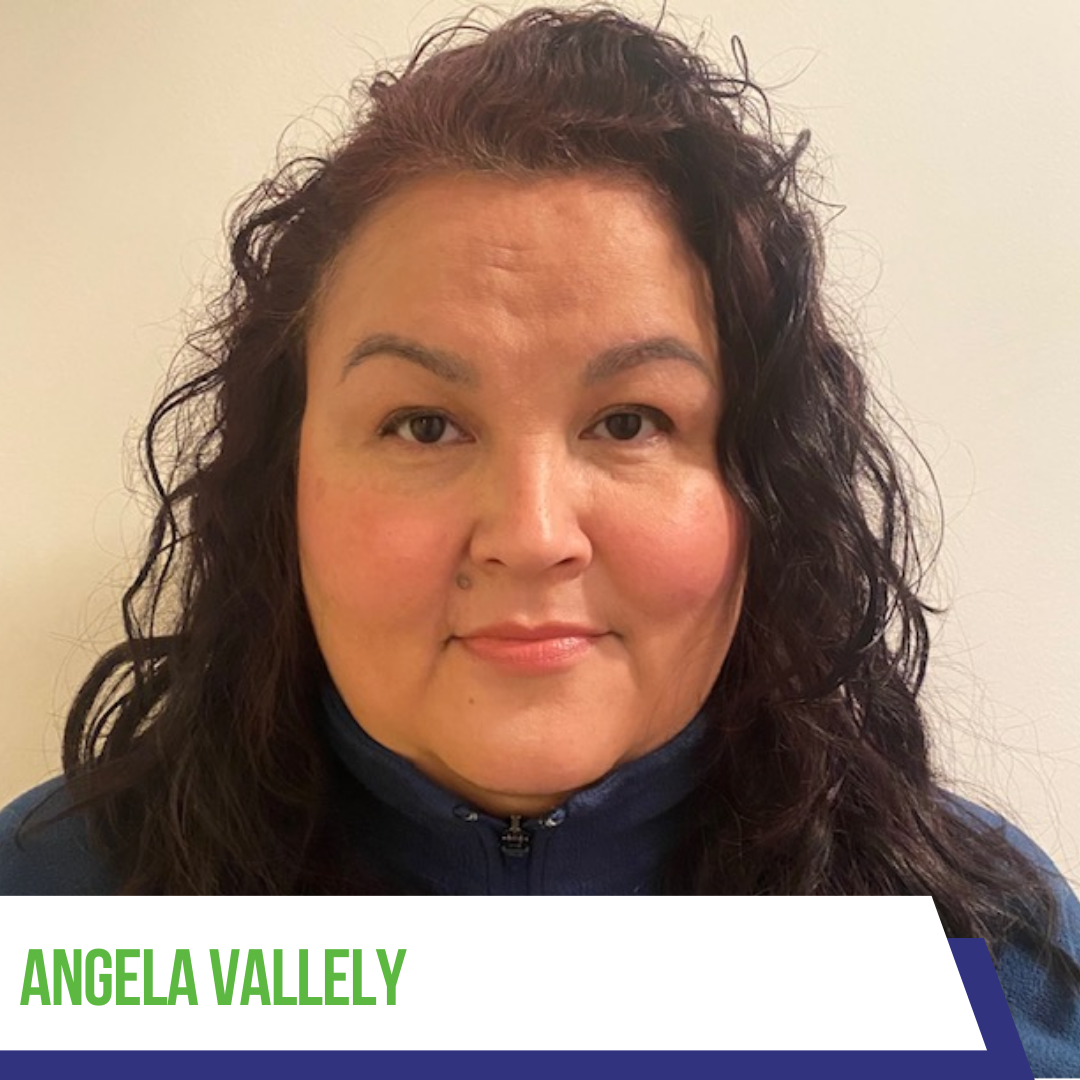
Angela Vallely is a Senior Policy Advisor with Public Safety Canada- Aboriginal Community Safety Planning Initiative (ACSPI.) For the past ten years the Aboriginal Community Safety team have been supporting Indigenous communities across Canada in the development of safety and wellness plans. Angela is a member of Fisher River Cree Nation, Manitoba but currently lives and works in Ottawa, ON.
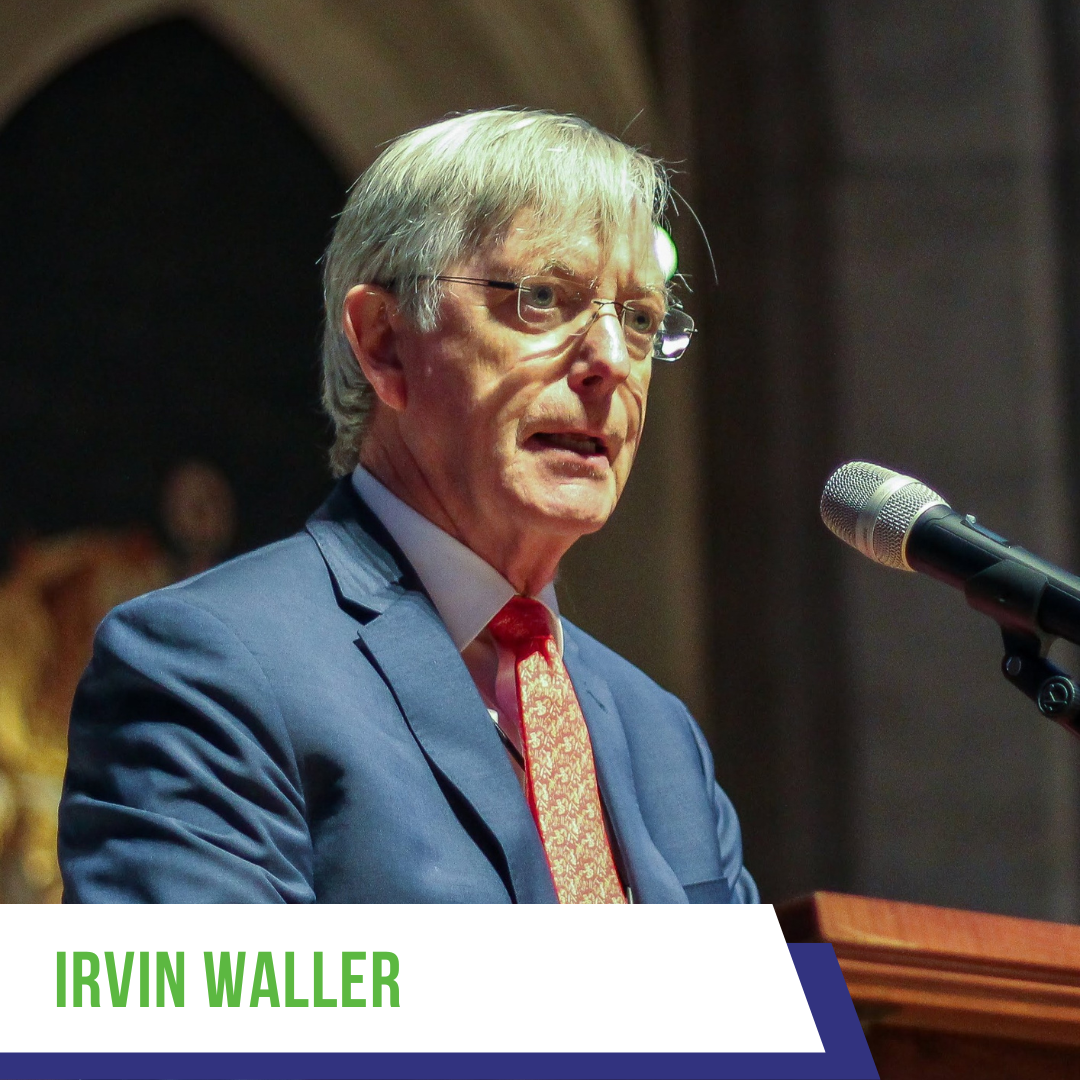
Irvin Waller is Professor Emeritus of Criminology, University of Ottawa. His latest book Science and Secrets of Ending Violent Crime explains programs proven to have reduced violent crime by 50% in less than five years. It shares secrets to get these programs used across countries to realise international commitments by Canada and the world to halve violent crime by 2030.
He completed his Ph.D. at Cambridge University on the impact of incarceration and parole on men released from prison. In 1974, he became director general of research in the Solicitor General of Canada (now Public Safety Canada) in 1970´s, working on policing, abolition of the death penalty, and gun control. He received multiple awards recognising his instrumental work to get the UN General Assembly to adopt a magna carta for victims in 1985, which influences rights for victims across the world. He received recognition from governments in Western Europe and North America for his role as the founding executive director of the International Centre for Prevention of Crime, affiliated with the UN.
He helped launch the European Forum for Urban Safety in 1988, the Safer Cities Program for UN Habitat in 2000, and the Canadian Municipal Network on Crime Prevention in 2015. He has advised more than 50 governments, including commissions in Canada, South Africa (Mandela´s government), UK and USA, on how to use science to stop crime. www.irvinwaller.org; Twitter @irvinwaller.
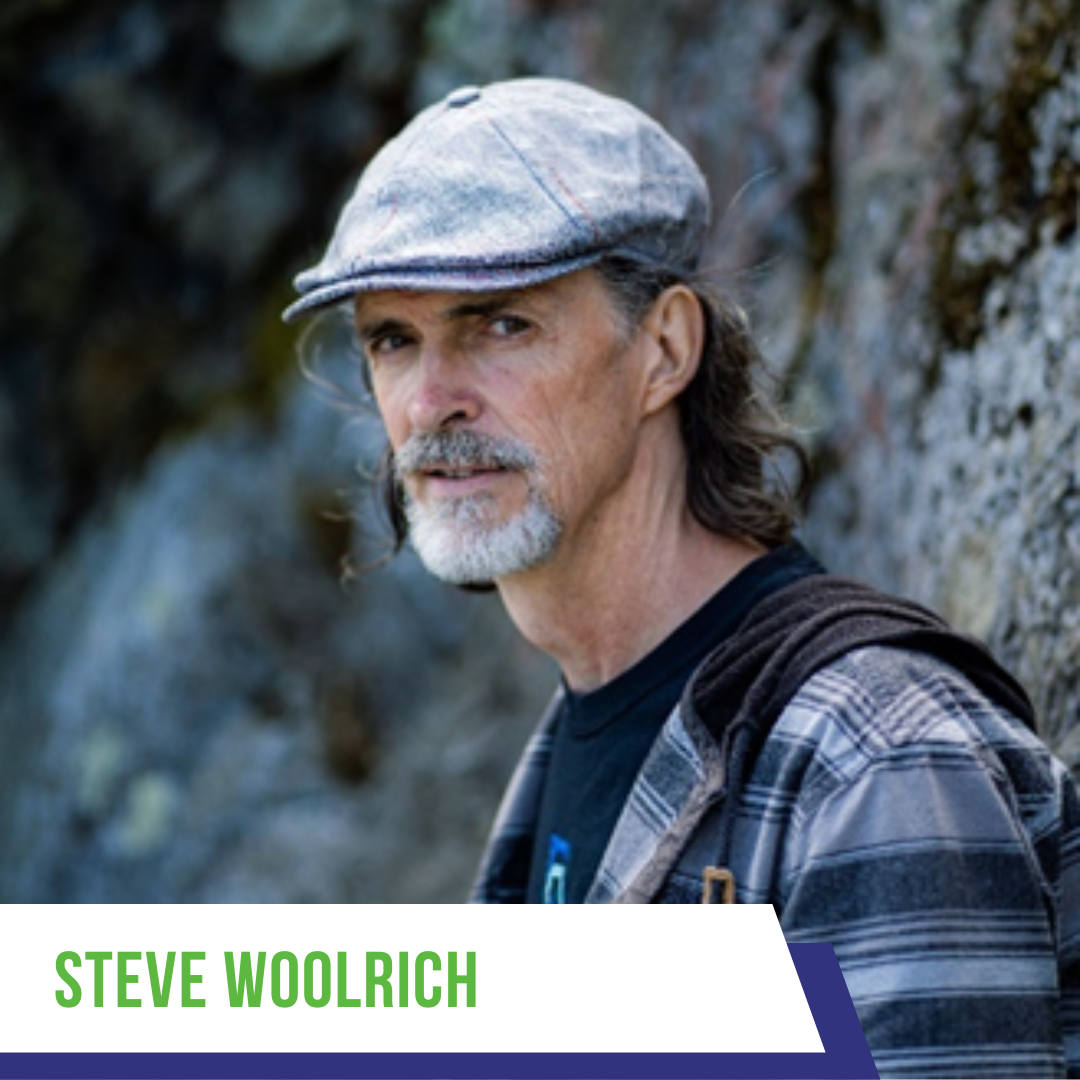
Steve Woolrich is an award-winning Crime Prevention and Community Safety Practitioner. He is passionate about creating safe and healthy built environments and has always considered himself a ‘boots on the ground’ consultant. Steve’s background is diverse and after graduating from Justice Administration and majoring in Police Science he went on to work closely with many different police services throughout Alberta. Trained in both CPTED and SafeGrowth ™ he has utilized these practices in many roles throughout his career, including corporate security and asset protection.
Steve is proud to have worked closely with the Alberta Government and was part of their provincial Gang Reduction Network, working as the Central Alberta lead. It was during this time that he became a trained Circle Facilitator and continues to use this process in all his community engagement work, including his previous work with high-risk youth.
Steve leads the largest Community Safety and Well-Being collaborative in Canada – Rethink Urban (RU). He is instrumental in the co-creation of RU’s signature approach – full SPECTRUM Community Safety and Well-Being fusing best practices, including CPTED, Placemaking and Healthy Built Environments to address complex community safety issues.
Steve lives off-grid on Galiano Island, BC and enjoys hiking, archery and cold water swimming.




